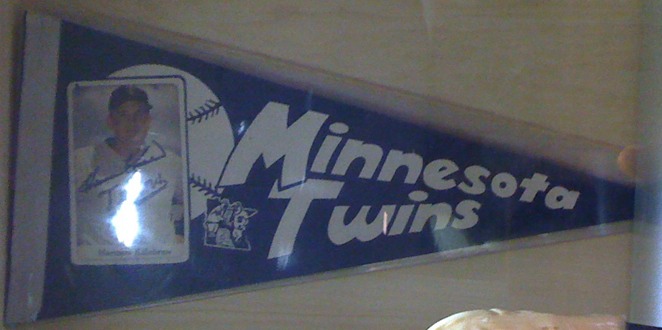Tuesday May 31, 2011
The 20 Greatest Games: Who Was I Rooting For?
Eventually I'll get around to how many of MLB's “20 Greatest Games of the Last 50 Years” I feel deserve the honor. In the meantime I'm curious just how many of the games made me happy at the time. Did my team win? Did it lose? Did I not care? What's my record in these 20 games?
20. May 17, 1979: Philies 23, Cubs 22 (10 innings). Didn't care. Didn't watch. Didn't even register, to be honest. (0-0-1)
19. 2003 NLDS, Game 4: Marlins 7, Giants 6. Rooting for the Giants just because they're one of the original teams, hadn't won a World Series since '54, and the Marlins were upstarts who already had one Series title, in '97, and no personality. Watched it on TV. (0-1-1)
18. 1980 NLCS, Game 5: Phillies 8, Astros 7 (10 innings). Was probably rooting for the Astros as an anti-Pete Rose kind of thing. I hated Pete Rose even before the gambling allegations became known. (See: Ray Fosse, Bud Harrelson, Moe haircut, etc.) Don't think I caught the game, though. I was an A.L. guy. (0-2-1)
17. 2004 ALCS, Game 4: Red Sox 6, Yankees 4 (12 innings). Oh god yes, totally for the Sox. I admit I thought it was pointless. Sox were down three games to none. Even if they won this one, no one had ever, ever, come back from three-zip to win a 7-game series. And against a team that had hurt them so badly for so many years? And yet... And yet... If they ever do a greatest series countdown, this one will be higher up. And, yes, watched it. (1-2-1)
16. Game 163 of the 2009 season: Twins 6, Tigers 5 (12 innings). Born and bred in Minnesota, baby. Watched it all. That was a good afternoon. (2-2-1)
15. 1995 ALDS, Game 5: Mariners 6, Yankees 5 (11 innings). I was at this one: 300-level behind homeplate. I'd been to all of these M's games throughout September and October. Refuse to Lose. The best part of my best baseball year ever. (3-2-1)
14. 1993 World Series, Game 6: Blue Jays 8, Phillies 6. Rooting for those hapless Phils. Somehow, when Mitch Williams came in, I knew. I guess everyone knew. (3-3-1)
13. 1997 World Series, Game 7: Marlins 3, Indians 2 (11 innings). Indians. They've had nothing since '48, and the Marlins were upstarts. Jose Freakin' Mesa. Painful. (3-4-1)
12. 2001 World Series, Game 4: Yankees 4, Diamondbacks 3 (10 innings). God, no. Screw 9/11, screw Jeter, screw the Yankees. (3-5-1)
11. Game 163 of the 1978 season: Yankees 5, Red Sox 4. God, no. And, yes, I ran home from school to watch the second half of this afternoon ballgame. Oh, Yaz. Where was your '67 magic, Yaz? (3-6-1)
10. 1988 World Series, Game 1: Dodgers 5, A's 4. Yep. Dodgers were big underdogs here. I'd just returned from a year in Taipei, Taiwan, was watching the game sitting on the floor in the living room of my father's house. When Gibson hobbled to the plate, I think I actually said aloud, “What do they think this is? The Natural?” It was. (4-6-1)
9. 2001 World Series, Game 7: Diamondbacks 3, Yankees 2. Mark Grace, Tony Womack and Luis Gonzalez made me happier than maybe any three men ever have. And seriously, this game should've been up higher. (5-6-1)
8. 1986 ALCS, Game 5: Red Sox 7, Angels 6 (11 innings). Mixed loyalties here. I'd never liked the Angels, an organization without flavor, who had spent years trying to buy a championship with the likes of Minnesota's own Rod Carew. But poor Gene Mauch. He deserved a Series. I probably began rooting for the Red Sox, and then, when they began to win, tried to put the brakes on. They didn't come on. (5-6-2)
7. 2003 NLCS, Game 6: Marlins 8, Cubs 3. Cubs. Awful. Who roots for the Marlins? Unless they're playing the Yankees. (5-7-2)
6. 2003 ALCS, Game 7: Yankees 6, Red Sox 5 (11 innings). You have to ask? (5-8-2)
5. 1986 NLCS, Game 6: Mets 7, Astros 6 (16 innings). Hated this Mets team at the time. Doesn't Ray Knight look like Derek Jeter's old brother? That hate has dimmed with time and with the Mets' historic ineptitude ever since. (5-9-2)
4. 1992 NLCS, Game 7: Braves 3, Pirates 2: Wanted the Pirates because they hadn't been in 13 years, the Braves had been the year before, and I hated (and hate) the tomahawk chop. (5-10-2)
3. 1986 World Series, Game 6: Mets 6, Red Sox 5 (10 innings). See no. 5. (5-11-2)
2. 1991 World Series, Game 7: Twins 1, Braves 0 (10 innings): No-brainer. My team, my main team, my mother team. Crack out a homerun/Shout out hip-hooray!/ Cheer for the Minnesota Twins today! (6-11-2)
1. 1975 World Series, Game 6: Red Sox 7, Reds 6 (12 innings). Red Sox. Never liked that Reds team, but appreciate them now, just like, as a Twins fans, I never liked the 1969-71 Orioles but appreciate them more than ever now. BTW: Did you see their show on this game on the MLB Network ? Who knew Johnny Bench talked so much? (7-11-2)
7-11-2. Not bad, considering I perpetually root for the underdog.
Other stats:
- Eight of the 20 games are World Series games, including the top three.
- Four are NLCS games, including no. 4.
- Three are ALCS games, including no. 6. (Which is too high.)
- Two are LDSs, including M's over Yankees at no. 15, the only game on the list I attended.
- Two are one-game playoffs, including no. 11, the Bucky Dent game.
- One is a regular season game. No. 20.
- 13 of the 20 games went into extra innings, including the top three.
- 13 of the 20 games were won by the home team, and all of those were won on the final at-bat.
- Of the seven visitor victories, two were at Wrigley Field, two at the Astrodome. (Bummer, dudes.)
- Six of the 20 games entered the bottom of the final inning (the 9th, or what became the final extra inning) with the home team behind. ('95 Mariners, '93 Blue Jays, '88 Dodgers, '01 Diamondbacks, '92 Braves, '86 Mets)
- Of these six, the final swing in four of the games changed the home team from losers to winners ('95 M's, '93 Jays, '88 Dodgers, '92 Braves)
- Of these four, two of the final swings came with two outs. ('88 Dodgers, '92 Braves)
- Of these two, one ended a series. ('92 Braves)

Final inning? Check. Home team behind? Check. Final swing reverses fortunes of teams? Check. Two outs? Check. Ends series? Check. And mate.
Tuesday May 31, 2011
Movie Review: X Men: The Last Stand (2006)
WARNING: THREE-MAIN-CHARACTERS-ARE-KILLED SPOILERS
When he took over the reigns of the “X-Men” franchise, director Brett Ratner promised that he and screenwriters Simon Kinberg and Zak Penn would put nothing on screen that hadn’t first been in the comic books.
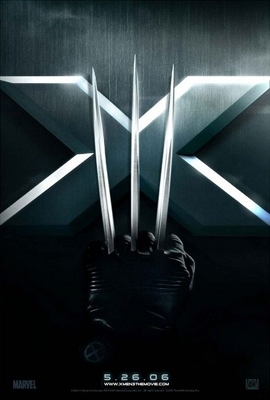 If so, they must’ve panned the entire “X-Men” oeuvre for stupid shit. Because that’s what’s on screen.
If so, they must’ve panned the entire “X-Men” oeuvre for stupid shit. Because that’s what’s on screen.
Here. These are the first words we hear. It’s 20 years ago, we’re in a nice suburban neighborhood, a car pulls up to the Grey household (1769) and Professor X and Magneto (Patrick Stewart and Ian McKellen), emerge, airbrushed creepily, for this bit of exposition:
Magneto: I still don't know why I’m here. Couldn't you just make them say yes?
Professor X: Yes, I could, but it's not my way. And I would expect you, of all people, would understand my feelings about the misuse of power.
Magneto: Ah, “power corrupts” and all that. Yes, I know, Charles. When are you going to stop lecturing me?
Let’s take a moment to distill that conversation:
Magneto: Hey, do X.
Professor X: I don’t do X. You know that.
Magneto: I know you don’t do X. Quit lecturing me on how you don’t do X.
The movie keeps doing this. It keeps giving us supposedly intelligent people having inane conversations.
The storyline is fine. You could argue the storyline is an improvement. In the first movie, Magneto tries to turn all humans into mutants (a dumb idea, since he despised humanity), and here humans try to turn all mutants into humans (a smart idea, since humans fear mutants). Dr. Henry McCoy, the Beast (Kelsey Grammar), who is now Secretary of Mutant Affairs, arrives at Xavier’s school with the news. “A pharmaceutical company has developed a mutant antibody: a way to suppress the mutant X gene,” he says. “They’re calling it a cure.” Everyone in the room is appalled. Then Rogue rushes into the room:
Rogue (excited): Is it true? Can they cure us?
Professor X (resigned): Yes, Rogue. It appears to be true.
Storm (angry): No, Professor. They can't cure us. You want to know why? Because there's nothing to cure. [To Rogue] Nothing's wrong with you. Or any of us, for that matter.
The X-Men series is often seen as a metaphor for the civil rights movement, or for homosexuality, but this is where that metaphor breaks down. Black is black, gay is gay, but not every mutation is created equally. No one mentions this in the film but here would’ve been a good spot. When Storm gets in Rogue’s face, Rogue should’ve stared back, taken off a glove, grabbed Storm’s wrist; and while Storm gasped in excruciating pain, while her face got all veiny, Rogue should’ve said:
Rogue: I can’t touch anyone. Ever. Because this happens. Get it?
[Lets go and Storm collapses on the ground.]
Maybe if I could control the weather I wouldn’t want to be cured, either. But don’t tell me there’s nothing wrong with me.
Instead we get what we get. Magneto recruits from “the Omegas,” underground mutants who dress goth-style and sport tattoos as if they were disaffected suburban kids. They gather in woods for speeches and lead an assault on Alcatraz Prison, where the mutant, Leech, who is the source of the antibody (mutants temporarily lose powers around him), resides, bald, silent, and vaguely concerned. But Storm leads a team of six mutants (Wolverine, Beast, Colossus, Iceman, Shadowcat) to defend Alcatraz and beat back this army of mutants. It’s a good battle sequence, I’ll give Ratner that, but it doesn’t make up for the stupidity we’ve already been subjected to.
And that’s only one of the movie’s two main storylines. The other deals with the resurrection of Jean Grey (Famke Janssen) as the Phoenix.
We knew this was coming. If we’d read X-Men #s 101-108, in which Jean Grey dies and is resurrected as the super-powerful Phoenix, we knew this was coming.
What I didn’t know, since I stopped collecting comics soon after that adventure, and went on to, you know, Kurt Vonnegut and Philip Roth and E.L. Doctorow and Norman Mailer, was the huge powers of the Phoenix weren’t the result of her death/resurrection. Apparently she’d always had them. Thus that opening scene at the Grey household. Thus the conversation between Professor X and Wolverine after Jean’s body, along with Cyclops’ glasses, are recovered from Alkali Lake. Here’s what we learn in that 30-second conversation:
- When Jean Grey was a little girl, Professor X created a series of psychic barriers to make her think she wasn’t as powerful as she was.
- Because of this, she developed a split personality: the Jean Grey we’ve known for two films; and the superpowerful, superangry Phoenix.
- Professor X isn’t sorry he did this.
- He dismisses, belittles, anyone who questions him on the matter.
This is the tail-end of their conversation:
Professor X: She has to be controlled.
Wolverine: Controlled? Sometimes when you cage the beast, the beast gets angry.
Professor X: You have no idea. You have no idea of what she’s capable.
Wolverine: No, Professor. I had no idea what you were capable of!
Professor X: I had a terrible choice to make. I chose the lesser of two evils.
Wolverine: Well, it sounds to me like Jean had no choice at all.
Professor X: I don’t have to explain myself—least of all to you.
I don’t have to explain myself—least of all to you? Really? That’s the moral exemplar of this series? The man who didn’t want to misuse his powers in the opening scene? The teacher who wouldn’t even tell Wolverine his own story in the second film—who said, channeling Glynda from “The Wizard of Oz,” that Wolverine had to figure it out for himself? Least of all you? Wow.
When I first saw this scene, back in 2006, I assumed that this Professor X, spouting such idiotic dialogue, was a hologram, or maybe Mystique, or was being controlled by some nefarious force, and I remember being confused when the movie kept going on and on until it became clear, no, this was Professor X spouting such idiotic dialogue.
It would’ve been so easy to fix, too. Keep most of the above dialogue—I like the “Sometimes when you cage the beast” line, for example—but give us the mea culpa:
Professor X: I know, I know... Maybe if I hadn’t... But it seemed the only way... God help me, it seemed the only way.
Or scrap this conversation and give us the big reveal in a conversation between Professor X and Magneto:
Magneto (amused): Charles, you’ve always accused me of not living up to your moral standards. You’ve even accused me of evil. Now look at you. Your beloved protégée is a monster. You ... [smiles wider] ... are a Dr. Frankenstein. In trying to do good, you’ve done more evil than someone like me could hope to do in a lifetime.
Instead we get what we get.
Don’t even get me started on the loutish dialogue between Rogue and Bobby (“You're a guy, Bobby; your mind's only on one thing”) or Mystique’s awful lines (“I don’t answer to my slave name”), or how Jean kills both Cyclops and Professor X—really kills them—and then just hangs back, crackling with power, as battles rage, or how Magneto, normally a smart man, sends mutants to kill Leech when their powers won’t work around Leech, or how the good X-Men neutralize Magneto with the mutant antibody, rather than Jean, who’s much more dangerous, or...
“X-Men: The Last Stand” posits Jean Grey as the most powerful, destructive mutant in the Marvel universe, but surely that title belongs to director Brett Ratner. He took a popular series, gave everyone stupid lines, killed off the main characters, then smiled like a chubby three-year-old expecting accolades. What a surprise for him when the world turned angry.
Or is there someone else? Someone more powerful and nefarious? The first two “X-Men” movies, in 2000 and 2003, helped reboot the superhero genre. Since then, the studio that produced and distributed them, Fox, has given us the following: “Daredevil,” “Elektra,” “Fantastic Four,” “X-Men: The Last Stand,” “Fantastic Four 2: Rise of the Silver Surfer,” and “X-Men Origins: Wolverine.” So maybe Fox is our most powerful and destructive supervillain. The corporation that would make idiots of us all.
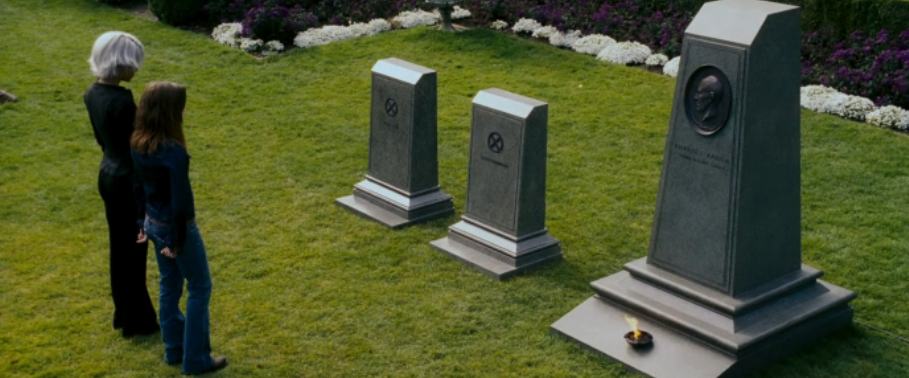
Death of a franchise.
Monday May 30, 2011
Memorial Day After Tomorrow
I was driving home from Trader Joe's Saturday afternoon when I heard a Tom Waits song, “Day After Tomorrow,” sung by others on “Prairie Home Companion.” I'd never heard it before. I try to stay on top of things but of course things keep piling up. It was part of Waits' album, “Real Gone,” released in 2004, so the song must've been written in the middle of the Iraq War, yes? He also performed it on “The Daily Show” in 2006 but I missed that, too. It took seven years and Garrison Keillor before I heard it. Some part of me is incensed that it took so long for something so perfect to reach me.
Was Waits influenced by Terrence Malick's “The Thin Red Line”? His lines: “They fill us full of lies/ Everyone buys/ About what it means to be a soldier” recall Sean Penn's lines at the end of Malick's movie. “Everything a lie. ... They want you dead or in their lie.”

Here's a video of Waits playing it in concert. Here's a video of him playing it on “The Daily Show.”
Here are the lyrics. It's a beautiful song. How nice to find beauty on the way back from Trader Joe's on a Saturday afternoon.
I got your letter today
and I miss you all so much here
I can't wait to see you all
and I'm counting the days here
I still believe that there's gold
at the end of the world
And I'll come home to Illinois
on the day after tomorrowIt is so hard and it's cold here
and I'm tired of taking orders
And I miss old Rockford town
up by the Wisconsin border
What I miss, you won't believe
shoveling snow and raking leaves
And my plane will touch down
on the day after tomorrowI close my eyes every nite
and I dream that I can hold you
They fill us full of lies, everyone buys
'bout what it means to be a soldier
I still don't know how I'm supposed to feel
'bout all the blood that's been spilled
Will god on this throne
get me back home
on the day after tomorrowYou can't deny, the other side
Don't want to die anymore then we do
What I'm trying to say is don't they pray
to the same god that we do?
And tell me how does god choose
whose prayers does he refuse?
Who turns the wheel
Who throws the dice
on the day after tomorrowI'm not fighting, for justice
I am not fighting, for freedom
I am fighting, for my life
and another day in the world here
I just do what I've been told
We're just the gravel on the road
And only the lucky ones come home
on the day after tomorrowAnd the summer, it too will fade
and with it brings the winter's frost dear
And I know we too are made
of all the things that we have lost here
I'll be 21 today
I been saving all my pay
And my plane will touch down
on the day after tomorrow
And my plane it will touch down
on the day after tomorrow
ADDENDUM: On the Tom Waits Library site, they include annotated lyrics, and, yes, he wrote it during the Iraq War but tried to make it about more than the Iraq War. Quote: “Yeah just a soldier writing home to his family. Tried to make it so it's not really about necessarily this war that we're in now, the Iraq war, but in fact about any war really. Because I guess the letters home are probably the same. I think most of the soldiers are really like the gravel on the road ... that the others are driving on, you know? Spent shell casings.”
Sunday May 29, 2011
Hollywood B.O.: Americans Remember War Dead with Second Hangover
I hope everyone who ignored the 22% Rotten-Tomatoes rating (top critics) for “The Hangover Part II” is feeling a bit hungover this Memorial Day weekend, after wasting their time and money, and our cultural capital, on such a worthless sequel. And before anyone gets all “What do critics know anyway” on me, the first “Hangover,” two years ago, garnered a 77% RT/TC rating. Critics liked it. This one? Not so much. Yet the unwashed flocked. Because they remembered the first one.
Suckers.
One still born every minute, apparently. “Hangover II”'s Thursday opening, $31 million, was the third-best Thursday ever—after “Star Wars: Revenge of the Sith” and “Matrix Reloaded”—and it still had enough in the tank to deliver the second-best three-day opening this year, $86 million, second only to “Pirates of the Caribbean 3”'s $90 million. Summer's officially here. We're flocking to crap.
The other big opener, “Kung Fu Panda 2,” grossed a mere $48 million. Despite good reviews.
“Pirates of the Caribbean” fell 56.4% to $39 million and third place. I doubt it'll gross even as much as the first one grossed in the summer of 2003 ($305 million) but doubt Disney cares. $152 million in the U.S. so far but more than $623 million already worldwide. Pirates.
But let's highlight two other comedies in the top 10.
“Bridesmaids,” in its third weekend, continued to have legs despite the comedic competition. It fell only 21% for $16.3 millon and fourth place. That drop, by the way, is by far the lowest drop among wide releases. “Fast Five,” at 37%, is second. “Bridesmaids” has now grossed $85 million domestic and seems a sure thing for $100 million.
Meanwhile, Woody Allen's “Midnight in Paris,” recent of the Cannes Film Festival, grossed $1.9 million for 7th place. Why talk about a $1.9 million movie when others are making more than half a billion? Because “Midnight” played in only 58 theaters yet made more money than “Something Borrowed, which played in 1,440 theaters, ”Rio,“ which played in 1,672 theaters, and ”Priest," which played in 1,918 theaters. Mazel tov.
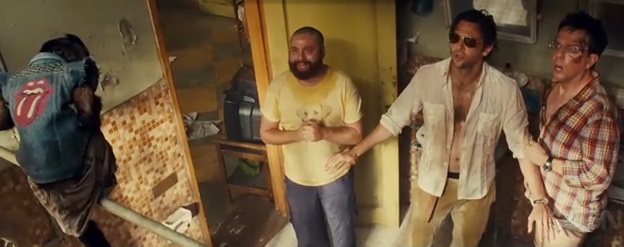
Nothing says remembering your war dead like hijinks in Bangkok.
Sunday May 29, 2011
Yankees Suck on Occidental Avenue and in Safeco Field
I went to the M's game Friday night at Safeco Field. It was my fourth game of the year. I'd only anticipated going to one game by this time but apparently I have friends, monosyllabic friends with tickets (Bill, Joe and Tim), so I'd seen the M's three times already, all on overcast evenings with temps in the 50s, and seen them go 3-0. But now we were playing the Yankees, the hated Yankees who famously suck; and even though we had the kid on the mound, Big Michael Pineda who'd been tearing up the league, it was still the Yankees, the hated Yankees who famously suck, so I was anticipating a loss. The odds alone, my 3-0 odds, seemed to demand it.
I was also anticipating Yankees fans. The M's aren't drawing M's fans, who want winning, and the other tickets, I assumed, would go to all those losers who need to flock to winners to feel like winners, no matter how the winners win.
What I didn't anticipate was seeing this on Occidental Avenue, the road leading to Safeco:

No, no, no.
Really?
Did this caravan follow the Yankess around, city to city, to sell to those losers who needed to feel like winners? All the bald, flat-assed Derek Jeter fans of the world?
It was actually local, the nearby sporting good shop, Sodo Sports, also of Occidental, who were rubbing M's faces in it on the way to the game. Apparently they do this all the time when big teams come to town: Red Sox, Blue Jays (Canadians), Dodgers for interleague games. This season they're getting ready with Phillies and Braves memorabilia in June. They figure they'll sell more Phils stuff than Miguel Olivo or Michael Saunders jerseys. They're right.
Still stung. Still pissed me off. It was like seeing my local credit union selling Bernie Madoff T-shirts in the lobby. Shouldn't we be better than this?
Worse, Pineda didn't have it that night. He gave up a solo homer to Mark Teixeira in the first. He kept walking guys. His fastball began to pop but his control for his breaking ball wasn't there. He would've given up another homer in the fourth to Nick Swisher but Franklin Gutierrez went over the wall, bad stomach and all, to rob him. Then in the fifth with two outs: walk, single, wild pitch (passed ball, Miguel) to plate one, single to plate another. Now we were down 3-0.
I turned to Tim. “So much for that.” He laughed.
A funny thing happened on the way to that loss. The M's, the team with the worst offense in the Majors, came back and won. They scored four runs without an RBI hit.
In the bottom of the fifth, we got a clean single from Brendan Ryan, a weak, left-field chalkline double from Ichiro, a groundout to plate Ryan, another groundout to plate Ichiro.
In bottom six, Kennedy singled, Olivo singled, Peguero walked. Bases loaded for Ryan. Who grounded out to plate Kennedy. Then Ichiro grounded out to plate Olivo.
Four runs on four groundouts. Ha!
And that's how we beat the mighty Yankees. Ha!
4-0. The odds rage. My next game at Safeco is scheduled for June 13th against the Angels, if you're a betting man.
Friday May 27, 2011
Humphrey, at 100, is Still the Man; Nixon Still Goes in the Garbage Can
There's a nice Op-Ed in the New York Times by Rick Perlstein, author of “Nixonland: The Rise of a President and the Fracturing of America,” on the forgotten liberal, Hubert H. Humphrey, former Mayor of Minneapolis, Senator from the great state of Minnesota, and a man for whom a downtown stadium was named. It's now called Mall of America Field. So it goes.
Humphrey was born 100 years ago today and Perlstein reminds those who need reminding that he helped turn the Democratic Party toward civil rights in a 1948 speech at the Democratic Convention. Humphrey said:
To those who say this civil rights program is an infringement on states’ rights, I say this: The time has arrived in America for the Democratic Party to get out of the shadow of states’ rights and to walk forthrightly into the bright sunshine of human rights.
A friend on Facebook also gave us this HHH quote:
It was once said that the moral test of government is how that government treats those who are in the dawn of life, the children; those who are in the twilight of life, the elderly; and those who are in the shadows of life, the sick, the needy and the handicapped.
One of his friends added this comment, which made me smile:
I was at a dinner once when the speaker said, “We can't just throw money at problems.” Unfortunately for him, Hubert was in the audience. He stood up and said, “What, then, is money for, if not to throw at problems?” I miss him.
He was abused by LBJ, but we know that. Is that LBJ's greatest legacy? Not the Vietnam War, not the Great Society, but abusing his vice-president so much that it paved the way for Nixon and dirty tricks.
Not in our household in south Minneapolis, by the way. My father, a fierce Democrat, once recounted in a letter to his father, a Danish immigrant who voted Republican, some ditty my brother and I had picked up in the schoolyard and recited at the dinner table back home:
Humphrey, Humphrey
He's our man!
Nixon goes
In the garbage can!
My political awakening. I was 5. And not wrong.
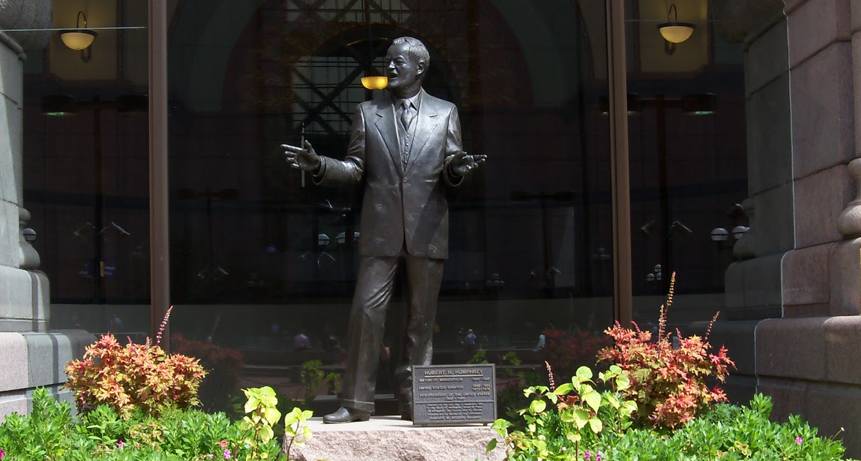
The Humphrey statue outside the Hennepin County Government Center in downtown Minneapolis. Life-sized, like the man himself.
Friday May 27, 2011
Movie Review: X2 (2003)
WARNING: ONCE AND FUTURE SPOILERS
Does any superhero movie have as many good scenes as this one? Let’s count ’em off:
- In the opening, Nightcrawler (Alan Cumming), to the pulse-pounding grandeur of “Dies Irae” from Mozart's Requiem in D Minor, poofs in and out of existence, climbs walls, swats secret servicemen with his tail, and comes within seconds of killing the President of the United States with a knife on which a note is tagged: MUTANT FREEDOM NOW!

- The forces of William Stryker (Brian Cox) lead an assault of Xavier’s School for Gifted Children, in which most of the students, even those with powers, flee, but Wolverine (Hugh Jackman), the lone adult in the joint, takes out half the special forces. Snkt!
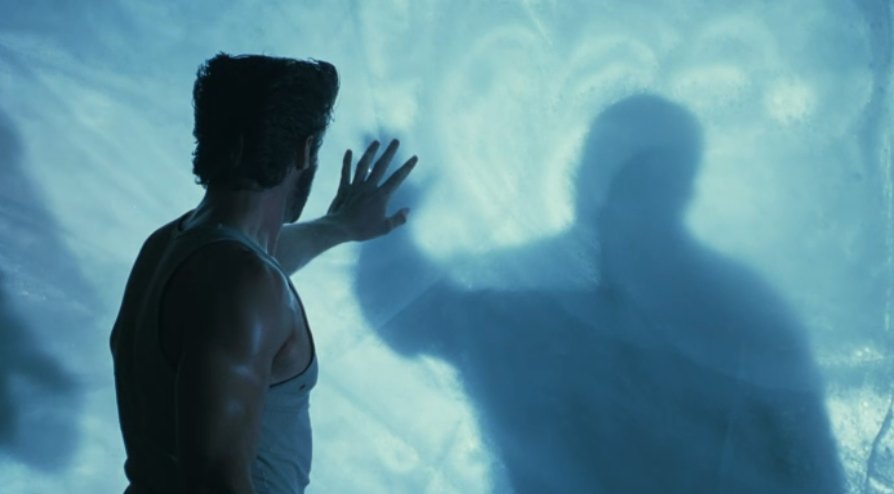
- Magneto (Ian McKellen), incarcerated in a plastic prison, discovers that—thanks to his partner-in-crime, Mystique (Rebecca Romijn)—his slovenly and brutish guard, Laurio (Ty Olsson), has metallic particles in his bloodstream. But what can Magneto do with a little metallic dust? Everything. He levitates Laurio, pulls the particles out of him—killing him painfully in the process—and manipulates the dust into three small metal balls with which, zinging and pinging like bullets, he destroys his plastic prison. Then flattening one metal ball into a platform, he rides it out of his prison while the other two orbit around him as if he were the sun. Brilliant.
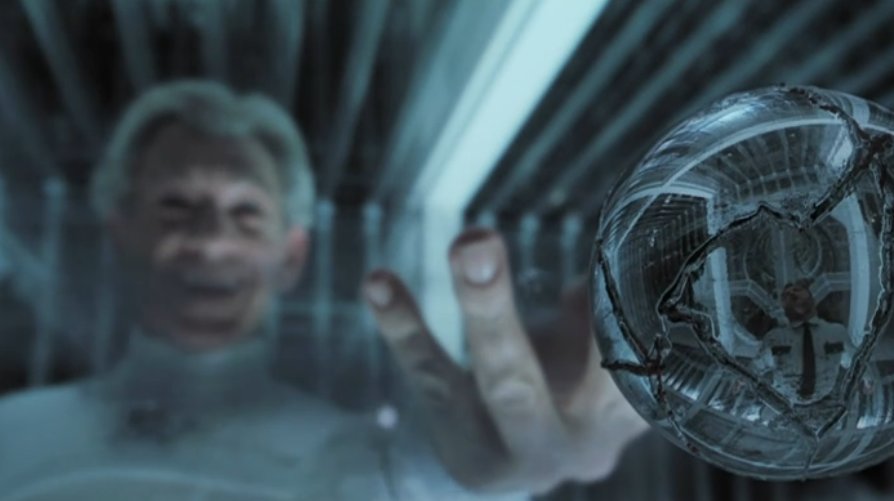
- The cops surround the house of the family of Bobby Drake (Shawn Ashmore), called there by his brother, Ronnie, and proceed to shoot Wolverine in the head, and order the others, Bobby and Rogue (Anna Paquin) and John (Aaron Stanford) onto the ground. Bobby and Rogue comply. John, also known as Pyro, doesn’t. Breathing heavily, looking at his hands, assessing the situation, he says, “You know all those dangerous mutants you hear about in the news? I'm the worst one.” Then he shows them.
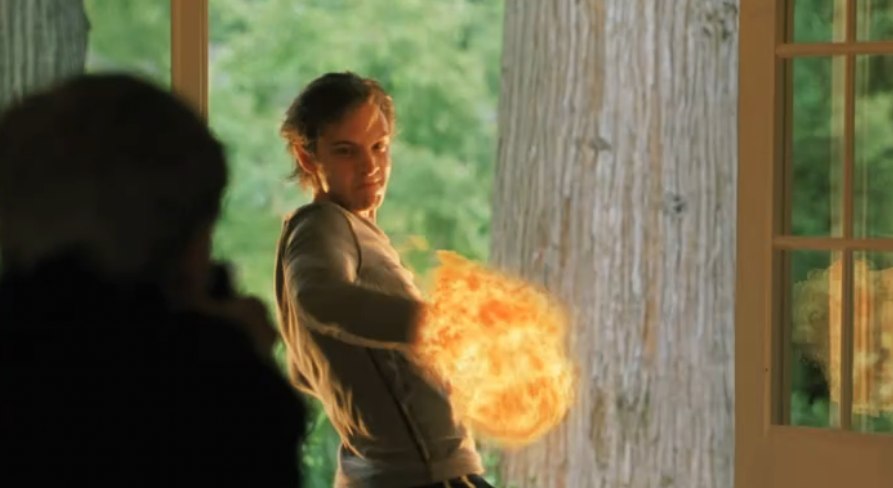
As I was writing these scenes down, all favorites, I realized they have something in common. They are moments when mutants let loose; when they no longer hold their powers in check and instead strike back against an unjust world. In each, we, the weak, popcorn-munching audience, who deal with unjustness all the time in our day-to-day, get to thrill at seeing unbridled power used against 1) an unjust government, 2) an unjust army, 3) a sadistic guard, and 4) an unjust world—a world where brothers turn you in to the cops and the cops shoot first and ask questions later.
What else do they have in common? They all involve either a hero who’s almost a villain (Wolverine), a hero duped into villainy (Nightcrawler) or actual villains (Magneto, Pyro). They don’t involve the main X-Men heroes: Professor X (Patrick Stewart), Storm (Halle Berry), Jean Gray (Famke Janssen) and Cyclops (James Marsden), our first, fourth, fifth and sixth-billed stars.
Why? Because these characters are dull. Dull dull dull. Professor X was always dull. Cyclops, too. It’s a problem as old as Milton’s “Paradise Lost,” in which Satan is a fascinating character and God is a bore. But does it have to be so? Professor X has the power to kill everyone on the planet with his mind. We see this power utilized in the film. So how about giving us some of that tension, the weight of that awful power, instead of Patrick Stewart’s bland benevolence?
I remember Storm having a fascinating backstory as a pickpocket in the “X-Men” comic books. That backstory was blown off in “X-Men” and only vaguely alluded to here. On the X-Jet, Storm goes back into the hold to try to draw out their new companion, Nightcrawler, whom they’ve picked up in a run-down church in Boston, and they have the following conversation:
Nightcrawler: You know, outside the circus, most people were afraid of me. But I didn't hate them. I pitied them. Do you know why? Because most people will never know anything beyond what they see with their own two eyes.
Storm: Well, I gave up on pity a long time ago.
Nightcrawler: Someone so beautiful should not be so angry.
Storm: Sometimes anger can help you survive.
Nightcrawler: So can faith.
When I first heard this conversation, in movie theaters in 2003, I thought Storm was implying that feeling pity was beneath her, that she had a larger spirit than that. No. She’s actually saying “Pitying humans is too good for them.” But that’s backwards. When you’re angry with someone it’s because they’re not living up to a certain standard you expect. When you pity someone it’s because they’re not living up to a certain standard ... and you know they never will. You’ve given up on them. Plus her anger, her contempt, comes out of nowhere, as if the filmmakers suddenly realized, “Oh yeah, Storm,” or as if Ms. Berry, post-Oscar, demanded a bit more screentime and wound up with this. But she doesn’t sell it. She never seems angry. She never seems Storm. She just looks slightly sad and way, way beautiful.

Storm. Angry. So angry.
And, hey, is Nightcrawler really implying that most people only know what they see because they don’t have faith? As if most people around the world don’t believe in something unseen? As if most don’t believe in God?
Despite that, and despite “X2”’s loutish, truncated title, designed to appeal to all the exxxtreme dudes playing their Xboxes and watching “XXX,” it’s still a great superhero movie, not only for the scenes above but for the quiet moments before the scenes above. It luxuriates in the language and embraces the mystery. I’m thinking Wolverine and Bobby in the kitchen before the attack; Wolverine and the cat in the Drake household; Rogue looking at Bobby’s old room in the Drake household; and Bobby’s “coming out” conversation with the Drakes (“Have you tried ... not being a mutant?”). There’s that beautiful visual, Bobby’s ice wall coming between Wolverine and Stryker, and the two men, seeing the shadow of the other on the other side, putting their hands on the wall.
I’m a fan, in particular, of the conversation between Magneto and John/Pyro on the X-Jet hurtling toward Alkali Lake. John begins poorly, dissing Magneto’s helmet. Then we get this:
Magneto: What's your name?
Pyro: [staring at his lighter in Magneto's hands] John.
Magneto: What's your real name, John?
Pyro: [summons lighter's flame to his hand] Pyro.
Magneto: Quite a talent you have there, Pyro.
Pyro: I can only manipulate the fire. ... I can't create it.
Magneto: You are a god among insects. Never let anyone tell you different.
It’s that last line. The way McKellen sells it. The scene is our first indication of Magneto’s recruitment technique. What does Professor X offer young mutants? Sanctuary. Safety. Companionship. Tutorial. He helps mutants control their powers, tamp them down. Magneto offers the opposite. All that power you feel within you? Let it loose.
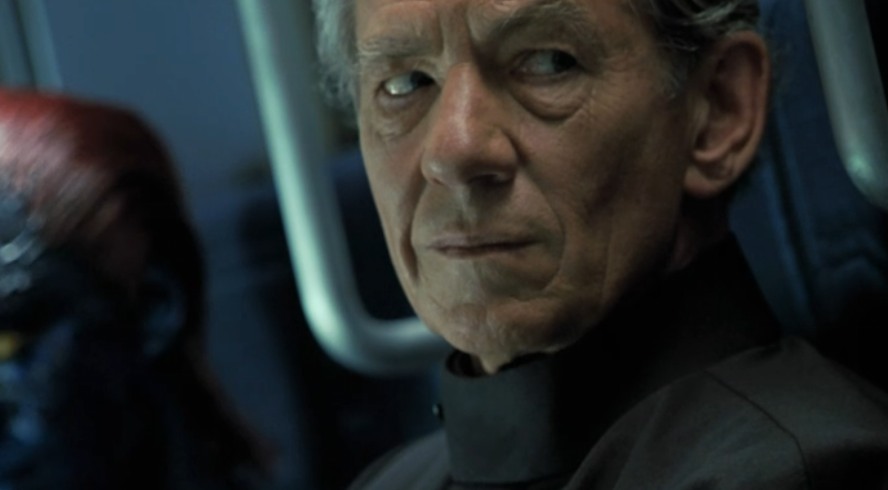
“You are a god among insects. Never let anyone tell you different.”
How does Magneto not have more acolytes? And shouldn’t there be a greater tension between the two camps? Young and scared, they flock to Professor X, but as they mature, as they come into their own, as they abandon the need for safety for the need for power, how can they not throw off the bland father figure, Professor X, for the completeness, the absoluteness, and the absolution Magneto offers? You are a god among insects. Who wouldn’t want that?
So if “X-Men,” the first movie, was about learning and combating Magneto’s plan to turn humans into mutants, “X2” is about learning and combating William Stryker’s plan to kill all mutants via Cerebro and a duped Professor X—who, despite his monumental psychic powers, never seems to see it coming. The final big battle takes place in an old military facility beneath Alkali Lake in British Columbia, and it is, well, a final big battle, with many moving parts, which director Bryan Singer handles well. But I’m a little tired of final big battles. You know there’ll be this, and that, and in the nick of ... and the final escape as ... and then (whew) safety. Did we all make it out OK? Here, Jean doesn’t. But anyone who knows the “X-Men” series knows she’s not just Jean Grey; she’s the Phoenix.
 Is it a coincidence that all three patriarchs in this movie—Professor X, Magneto, Stryker—have powerful female sidekicks? Of course Stryker’s sidekick, Lady Deathstrike (Kelly Hu), is there against her will, making her death at the hands of Wolverine all the more poignant. I guess Professor X’s sidekick, Jean, is there against her will, too, isn’t she? We find that out in the next movie. Only Magneto’s lady is hanging with him because she wants to. Let’s hear it for the villains.
Is it a coincidence that all three patriarchs in this movie—Professor X, Magneto, Stryker—have powerful female sidekicks? Of course Stryker’s sidekick, Lady Deathstrike (Kelly Hu), is there against her will, making her death at the hands of Wolverine all the more poignant. I guess Professor X’s sidekick, Jean, is there against her will, too, isn’t she? We find that out in the next movie. Only Magneto’s lady is hanging with him because she wants to. Let’s hear it for the villains.
I could’ve done with a different final White House scene. Stryker dupes Professor X into using Cerebro to almost kill every mutant on the planet (including himself?), but Magneto, maintaining the dupe, has him target every human on the planet instead. It almost works. Does every human on the planet crouch in pain like Stryker does? What a story! ALL OF HUMANITY ALMOST KILLED BY LONE MUTANT. You’d think then, when presenting himself before the powers-that-be, in this case the President of the United States, who was nearly killed by Nightcrawler before he was nearly killed by Professor X, you’d think Professor X would be a bit more ... apologetic. Abashed. Sheepish. No. Professor X freezes time before POTUS’s speech to the nation and the other mutants arrange themselves around the room in dark, stormy, threatening postures. They present evidence against Stryker, who instigated the attempted Nightcrawler assassination, but offer no mea culpa for the near-global genocide. Instead Professor X says, “We're here to stay; the next move is yours.” Wolverine adds, “We'll be watching.” Oh, and about killing nearly everyone on the planet? Sorry. Won’t happen again. Pinky swear.
The saddest part of the movie, though, is the knowledge that it's the last one with this director. Bryan, we hardly knew ye. And look who you left us with.
Thursday May 26, 2011
Second Screenshot of the Day
Tomorrow I'll be posting a review of the second X-Men movie, “X2,” which was released in 2003, in anticipation of the new “X-Men” movie coming out next week. In the meantime here's a screenshot from the film that, for some reason, I didn't remember until this viewing. In certain parts of the world, and possibly within the U.S. if he'd done it without Ms. Romijn's permission, director Bryan Singer could get arrested for this kind of thing. Thank god for gay directors.
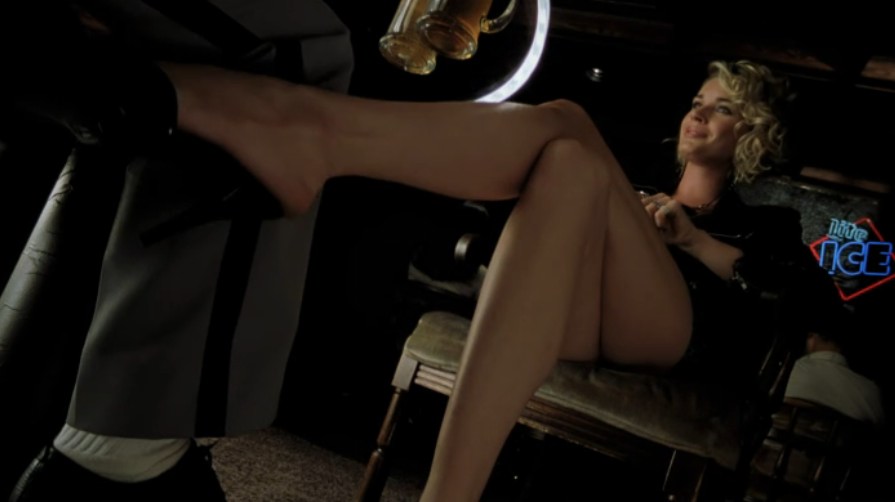
“Mr. Laurio, never trust a beautiful woman. Especially one who's interested in you.”
Thursday May 26, 2011
Screenshot of the Day

Wednesday May 25, 2011
Quote of the Day
“This spring, Obama officials often expressed impatience with questions about theory or about the elusive quest for an Obama doctrine. One senior Administration official reminded me what the former British Prime Minister Harold Macmillan said when asked what was likely to set the course of his government: 'Events, dear boy, events.'”
-- from “The Consequentialist: How the Arab Spring remade Obama's foreign policy” by Ryan Lizza in the May 2, 2011 New Yorker. Amusingly, Lizza's last graf begins thus: “Nonetheless, Obama may be moving toward something resembling a doctrine.” Oh, Ryan. Read the whole thing here.
Tuesday May 24, 2011
Yankees Suck Quote of the Day
“I was at a family function over the weekend and spent much of it talking baseball with my wife's uncle, a huge Yankees fan. The short version of his analysis: He's not too concerned about the state of the team because he's convinced the Yankees will make a few trades.
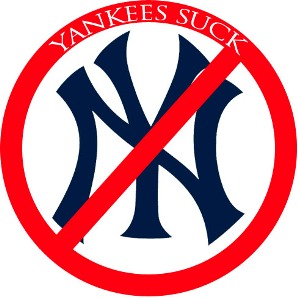 ”You know ... like for Felix Hernandez. Everybody in New York still thinks the Yankees can just trade for Felix because ... well, I guess because they're the Yankees. Now, let's repeat something we've said several times:
”You know ... like for Felix Hernandez. Everybody in New York still thinks the Yankees can just trade for Felix because ... well, I guess because they're the Yankees. Now, let's repeat something we've said several times:
“The Mariners aren't going to trade Felix Hernandez.
”Repeat: The Mariners aren't going to trade Felix Hernandez.
“Now, my wife's uncle says that's OK, because the Yankees will just acquire Mark Buehrle instead. Now, maybe the White Sox will eventually fall far enough out of the race that trading Buehrle will make sense. But it doesn't now.”
-- David Schoenfield, “Sweet Spot” column, ESPN.com
Tuesday May 24, 2011
Happy Birthday, Bob
A few years ago some friends and I were having an online discussion of a song, The Damnwell's “I Will Keep the Bad Thing from You,” and one of my more critical friends thought it unworthy, particularly the refrain “Catch it while you can/ It's the feel-good hit of the summer.” I liked the song, defended it elsewhere, but agreed with that critique. Then he said it was unworthy by comparing it to Bob Dylan and I drew the line. “Dylan's off limits,” I said. “It's like saying some new movie sucks because it isn't 'Citizen Kane.'”
Seriously. Dylan has written our best love songs:
My love she speaks like silence
Without ideals or violence
She doesn’t have to say she’s faithful
Yet she’s true, like ice, like fire
People carry roses
Make promises by the hours
My love she laughs like the flowers
Valentines can’t buy her--“Love Minus Zero/No Limit,” from the album, “Bringing It All Back Home,” 1965
He has written our best political songs:
You that never done nothin'
But build to destroy
You play with my world
Like it's your little toy
You put a gun in my hand
And you hide from my eyes
And you turn and run farther
When the fast bullets fly-- “Masters of War,” from the album, “The Freewheelin' Bob Dylan,” 1963
He has written our best story songs:
The hanging judge came in unnoticed and was being wined and dined
The drilling in the wall kept up but no one seemed to pay it any mind
It was known all around that Lily had Jim's ring
And nothing would ever come between Lily and the king
No nothing ever would except maybe the Jack of Hearts.-- “Lily, Rose, and the Jack of Hearts,” from the album, “Blood on the Tracks,” 1975
Funny? Yes:
Now, I gotta friend who spends his life
Stabbing my picture with a bowie-knife
Dreams of strangling me with a scarf
When my name comes up he pretends to barf
I've got a million ... friends--“I Shall Be Free No. 10,” from the album “Another Side of Bob Dylan,” 1964
Insulting? Of course:
I wish that for just one time
You could stand inside my shoes
And just for that one moment
I could be youYes, I wish that for just one time
You could stand inside my shoes
You’d know what a drag it is
To see you-- “Positively 4th Street,” a single, 1965, and on the album “Bob Dylan's Greatest Hits”
Timeless? The times are a' changin' but the wisdom in his songs often felt ancient and eternal:
Well, if you’re travelin’ in the north country fair
Where the winds hit heavy on the borderline
Remember me to one who lives there
She once was a true love of mine--“Girl from the North Country,” from the album, “The Freewheelin' Bob Dylan,” 1963
How about spiritual?
You may be an ambassador to England or France
You may like to gamble, you might like to dance
You may be the heavyweight champion of the world
You may be a socialite with a long string of pearlsBut you’re gonna have to serve somebody, yes indeed
You’re gonna have to serve somebody
Well, it may be the devil or it may be the Lord
But you’re gonna have to serve somebody--“Gotta Serve Somebody,” from the album “Slow Train Coming,” 1979
It's actually better to mix and match categories since most bleed into one another. “Lonesome Death of Hattie Carroll” may be our best political song, as well as a great story song, with a bitter angry humor to its last verse:
In the courtroom of honor, the judge pounded his gavel
To show that all’s equal and that the courts are on the level
And that the strings in the books ain’t pulled and persuaded
And that even the nobles get properly handled
Once that the cops have chased after and caught ’em
And that the ladder of law has no top and no bottom
Stared at the person who killed for no reason
Who just happened to be feelin’ that way without warnin’
And he spoke through his cloak, most deep and distinguished
And handed out strongly, for penalty and repentance
William Zanzinger with a six-month sentence--“The Lonesome Death of Hattie Carroll,” from the album “The Times They Are a Changin',” 1964
I could go on. Sometimes I say that phrase and don't mean it, but I could reproduce great Bob Dylan lyrics all day, on this day, his 70th birthday. Instead I'll just link to his site where you can read the lyrics yourself. I'll link to Loudon Wainwright III's now-20-year-old song, “Talkin' New Bob Dylans,” a humorous take on the difficulty of coming up in his wake. I'll recommend Martin Scorsese's superlative documentary “No Direction Home,” from 2005, which gives a portrait of the artist, and of creativity, that is among the best I've seen. Scorsese reminds us that none of us are nouns, we're all just verbs, we're all moving from one place to another—one sacred place to another, J.D. Salinger would say. It may even suggest that the true problems of the world arise when we dig in and say, “No, this is it. This is the one thing. Only here is where meaning lies.” Dylan didn't do that. Dylan kept going. He's still going.
Tuesday May 24, 2011
Movie Review: The First Grader (2010)
WARNING: SCOWLING SPOILERS
Kimani N'gan'ga Maruge (Oliver Litondo) is a 84-year-old Kenyan man, a former Mau Mau warrior who, we learn in gauzy, slow-motion flashbacks, was captured by British colonialists and loyalists in the 1950s, imprisoned, tortured, and forced to watch his wife and children slaughtered before his eyes, all because he refused to give up the idea of Kenyan independence, which came about, while he was incarcerated, in 1963.
In modern-day Kenya, Maruge (pronounced: Ma-roo-gay) hears on the radio how the government is offering free education to everybody. The implication is “every...child” but Maruge doesn’t hear the implication. So he goes to his nearby, overcrowded schoolhouse, run by Jane Obinchu (Naomie Harris of “Pirates of the Caribbean” fame), and demands his free education. He wants, he says, to learn to read.
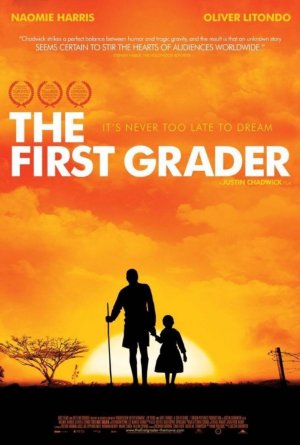 On the first day he’s turned away. On the second day, Jane, over the objections of a straight-arrow teacher and administrator, lets him into her classroom, where, because of hearing problems (the British once burst his eardrum with a sharpened pencil), he has to sit in the front row. One would think this would cause a problem for the student or students sitting behind him, since they’d have trouble seeing, but it’s actually the student next to him, a cute boy who scowls, and who draws his 5s backwards, who resents the intrusion. Why? Perhaps because he’s the son of the scowling man in the village who resents Maruge for no earthly reason.
On the first day he’s turned away. On the second day, Jane, over the objections of a straight-arrow teacher and administrator, lets him into her classroom, where, because of hearing problems (the British once burst his eardrum with a sharpened pencil), he has to sit in the front row. One would think this would cause a problem for the student or students sitting behind him, since they’d have trouble seeing, but it’s actually the student next to him, a cute boy who scowls, and who draws his 5s backwards, who resents the intrusion. Why? Perhaps because he’s the son of the scowling man in the village who resents Maruge for no earthly reason.
That’s the set up. Charming old man wants to learn to read—in order to read, himself, a letter he received long ago from the President of Kenya. Beautiful teacher wants to help. Others scowl and plot.
First, the local superintendent, Mr. Kipruto (Vusi Kunene) objects on fairly logical grounds. The school only has so many resources; it should be focusing on the future, which is the kids, rather than the past, which is the charming old man. Unfortunately, the superintendent is not attractive, talks in a blustery voice, and dresses in the faded brown leisure suits of the 1970s. So much for him.
When Maruge’s story breaks into the western press, the other villagers, out of jealousy, begin to object, and the scowling man, sensing his opening, pays others to lead an assault on the little schoolroom where Maruge is learning. It’s also where his own son is learning. Ah well. Moot point anyway. Maruge drives away half a dozen men with his cane.
At this point Jane begins to receive threatening phone calls, so she convinces her boyfriend, Charles Obinchu (Tony Kgoroge), to leave the big city, and his job, whatever it is, and return to her side. He does. Then he begins to get threatening phone calls, divisive phone calls, phone calls that insist Jane is a whore who is running around behind his back. Will these people, whoever they are, stop at nothing?
Finally, Superintendent Kipruto has Jane transferred to another village. Mr. Kipruto then leads a celebratory, dancing welcome for the new teacher, who is fatter and less attractice than Jane; but the schoolkids lock the gates and pelt the adults, including the new teacher, with objects, and chant “We want sister Jane” over and over.
But sister Jane doesn’t return.
So Maruge sells his pet goat to take a van to Nairobi, where, en route, we see billboards with Maruge on them, extolling education, and where, in Nairobi, he insists upon seeing the Minister of Education. For some reason, the fact that he’s Maruge, the guy from the billboards, isn’t enough to get him into the Minister’s office. So he sneaks past a secretary, bursts into an ongoing meeting, strips to his waist, shows off the scars on his back that he received in helping gain their independence, and basically shames everyone into listening to him. He makes a plea for Jane. “Bring her back,” he says.
Afterwards we get a montage of schoolwork—Margue guiding the kids as best he can—and then a fade to black.
Then fade in. And there’s Jane, coming through the gates again, smiling and holding out her arms! They won!
But aren’t the village neighbors still jealous and angry? Isn’t the scowling man still scowling? Isn’t the superintendent even angrier than before?
Yes, but... they won! Now Margue can learn to read. And now he will finally be able to read the letter the President of Kenya sent him long ago, and he’ll be able to do it on his own, as he always wanted to do. That’s what this whole story is about, after all.
Except then he brings the letter to Jane, and tells her, “It is too hard. You must read it for me.”
Wait—come again? Wasn't the point of all of this drama so you could do this one thing that you now say you can't do? Yet without blinking, without the movie blinking, she does it for him.
So what mysterious things are in the letter we’ve waited the entire movie to hear? Well, the President of Kenya thanks Maruge for his service to his country; he also says Kenya is now independent because of people like him. Then Jane looks at him with proud, shining eyes, and he looks at her with proud, shining eyes, and the soundtrack gives us more of that generic African music, and we fade to a shot of the real Maruge, who died in 2009, and that’s the movie.
“The First Grader,” written by Ann Peacock, born in Cape Town, South Africa, and directed by Justin Chadwick, born in Manchester, England (England), contains odd echoes of Spike Lee’s “Do the Right Thing,” too: the local DJ intoning, “My people, my people...” before each pronouncment; the fun-loving, trash-talking crew hanging on the village corner. It also opened the 2011 Seattle International Film Festival. Why? I assume two words won over the directors of the festival: “African” and “uplifting.” It’s African, and thus third world, so it must be meaningful; and it’s uplifting, so, to western moviegoers, it’s accessible.
But it’s a nothing film. Who is Maruge? A good man. Who is Jane? A good woman. Who is the superintendent? A bad man. Who is that poor teacher who gets stoned on her first day of class? Who knows? Maruge may learn to read here but we learn nothing.
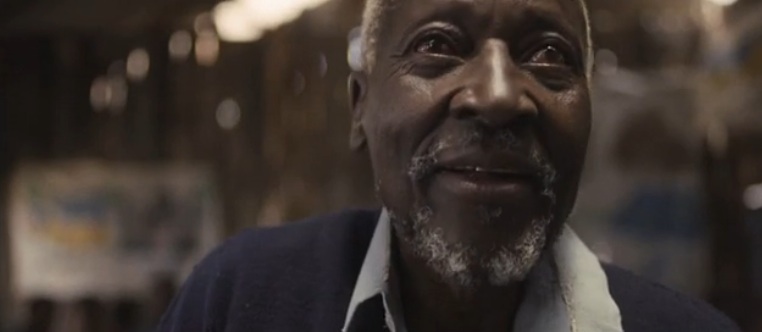
The Good Man

The Good Woman
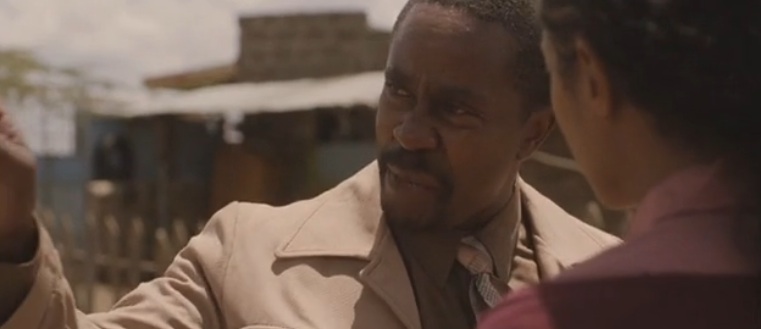
The Bad Man.
Monday May 23, 2011
Movie Review: X-Men (2000)
WARNING: XAVIER’S SCHOOL FOR GIFTED SPOILERS
Just as “Fantastic Four #1” ushered in the Marvel Age of comics in November 1961, “X-Men,” the movie, released in July 2000, ushered in the blockbuster age of cinematic superheroes. Indeed, it’s fascinating how much movie musclemen followed the path of their comic book predecessors. The whole crazy superhero parade began with Superman in 1938, picked up with Batman a year later, then became bigger than ever under Marvel in the early 1960s. That’s Hollywood’s pattern, too. Superhero blockbusters began with “Superman: The Movie” in 1978, picked up with Tim Burton’s “Batman” a decade later, then became bigger than ever under Marvel in the 2000s.
So why was “X-Men” essentially the “FF #1” of cinema? Why—besides CGI—does the movie work so well?
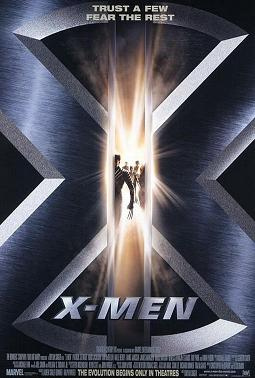 It’s partly the director. Just as Marvel superheroes were reluctant superheroes, Bryan Singer was a reluctant director. He didn’t know from mutants and didn’t want this thing on his plate. But Fox Studios wanted him, the wunderkind who had directed “The Usual Suspects,” and Singer handled the assignment smartly. As he explored structural ideas for the movie, he realized there was something serious in the material. “It's actually about prejudice,” he told The New York Times in 2000.
It’s partly the director. Just as Marvel superheroes were reluctant superheroes, Bryan Singer was a reluctant director. He didn’t know from mutants and didn’t want this thing on his plate. But Fox Studios wanted him, the wunderkind who had directed “The Usual Suspects,” and Singer handled the assignment smartly. As he explored structural ideas for the movie, he realized there was something serious in the material. “It's actually about prejudice,” he told The New York Times in 2000.
Let’s hear it for casting director Roger Mussenden, too. Patrick Stewart was an obvious fanboy choice for Professor X, while Sir Ian McKellen, who had starred in Singer’s “Apt Pupil,” was an inspired choice for Magneto, who had always been drawn taller, darker, younger and stronger. Famke Janssen, literally perfect in a “Star Trek: The Next Generation” episode, was, again, hubba-hubba perfect for Jean Grey. Anna Paquin, best known for “The Piano,” made a vulnerable Rogue, Rebecca Romijn made a sexy Mystique, James Marsden a straight-arrow Cyclops. Hugh Jackman, the back-up choice for Wolverine, became a star. Really, the only miscast was the best-known cast member. Storm is African, tall and powerful, and Halle Berry, unlike McKellen, can’t make up the deficit. Her Storm always feels like a drizzle.
Does it help that the X-Men aren’t traditional superheroes? They don’t wear masks, don’t “fight crime,” don’t acquire superpowers through some absurd Atomic-age means: cosmic rays or gamma rays or radioactive whatchacalms. They’re mutants, freaks, outcasts. In this way they better represent the latter part of the 20th century. If the metaphor for Superman, the first superhero, is one of melting-pot assimilation, of hiding among the masses in plain sight, the metaphor for the X-Men is one of segregation, of removal from society, of identifying yourself with the maligned subgroup (mutants) over the group (humans). It’s a post-Civil Rights metaphor, and the leaders of the two mutant groups, Professor X and Magneto, can be seen as Martin Luther King, Jr., and Malcolm X figures, counseling either non-violence and integration or violence and segregation. Magneto’s last line is even one of Malcolm’s more famous lines: He plans to fight the enemy “by any means necessary.”
The first conversation between Prof. X and Magneto, outside U.S. Senate hearings on “the mutant phenomenon,” contains echoes of this philosophical difference:
Professor X: Don’t give up on them, Eric.
Magneto (weary): I’ve heard these arguments before.
Professor X: It was a long time ago. Mankind has evolved since then.
Magneto: Yes. Into us. .. We are the future, Charles, not them. They no longer matter.
One of the strengths of the film is that Magneto actually makes sense. Sure, Professor X is nicer, but is Magneto more practical? Does he see the world more clearly? Wolverine echoes this thought halfway through the film. “There’s a war coming,” he tells Storm. “Are you sure you’re on the right side?”
Singer and screenwriter David Hayter even take the unprecedented step of beginning the film with its ostensible villain, Magneto, in a sympathetic role. It’s 1944, Poland, and Eric Lensherr, a mere kid, is being herded with his parents and hundreds of others into concentration camps (for the strong) or extermination camps (for the weak). Eric’s parents are separated from him, to be executed, and he tries to save them. (See: Jason White, piano, Lois Lane, in Singer’s “Superman Returns.”) It takes six Nazi guards to hold him back and even then he is able to completely warp the large metal gate to the camp. You could say the experience warps him, too. It makes his later hatred of mankind understandable. Hell, you know who he’s like here? Bruce Wayne. Batman. The two have the same story. After their parents are killed, right in front of them, they spend the rest of their lives going after the killers. They just define “killers” differently.
In this manner, in modern-day North America, we’re introduced to the various mutants: Rogue, who can’t touch anyone without killing them; Wolverine, an amnesiac, cage fighting in a dead-end Alberta bar, and whom Rogue serendipitously (a bit too serendipitously) runs into; Cyclops and Storm, who aid Wolverine and Rogue, in battling Sabretooth, Magneto’s envoy.
By this point mutants are known, they’ve been outed in some fashion, so Dr. Jean Gray addresses the U.S. Congress to quiet people’s fears. She doesn’t. The movie lets us believe she’s upstaged by a grandstanding, reactionary politician, Sen. Kelly (Bruce Davison), the Joe McCarthy or Jim Inhofe of this world, but she’s actually just a lousy debater. She even begins wrong:
Ladies and gentleman, we are now seeing the beginnings of another stage of human evolution. These mutations manifest at puberty, and are often triggered by periods of heightened emotional stress.
Advice: If you’re attempting to win people over, it may not be a good idea to suggest that they are at an earlier stage of evolution: homo erectus to your homo sapiens.

Losing argument: “Don't fear us: we are simply more evolved than you.”
It’s actually Sen. Kelly who gets to the point: “You’ve failed to address the issue that is the focus of this hearing: Are. Mutants. Dangerous?”
Gray, despite the glasses, flubs it. She says the question is unfair, that cars in the wrong hands are dangerous, but Kelly reminds her that we license people to drive. Then, though she’s at the podium, he continues framing the debate as he wants it framed. A shame. They could’ve wound up at the same point in a smarter fashion. Something like:
Kelly: Are mutants dangerous?
Gray: Are human beings dangerous? I think it depends upon the human being.
Kelly: But individual human beings can only be so dangerous.
Gray: Unless they have a weapon: a gun, a plane, an atom bomb.
Kelly: Are you saying there are mutants as powerful as atom bombs? [Glances around the chambers.] How does that make you feel? Safe? Would you like to be living next to someone who has the power of an atom bomb? Who could blow up your neighborhood, your city, your country, like that? [Snaps fingers.] Ladies and gentleman, this is a matter of public safety...
It’s a shame “X-Men” came out when it did, in the summer of 2000, a year before 9/11, when we hadn’t been debating civil liberties/civil rights much, when we’d forgotten how reactionary we could be. The movie gives us one loud-mouth senator and a few people with placards (“Human Rights,” etc.), when, let’s face it, if there were mutants among us, with such powers, the legislation to combat them, the time and energy spent in searching for them and incarcerating them in Gitmo-like facilities, would be overwhelming. Look what we did after a few Muslim fanatics hijacked a few planes.
But that’s the set-up. Mutants have been outed, Professor X counsels caution, Magneto prepares for war. He and his crew are plotting, and Professor X and his crew try to figure out the plot, and Wolverine, our eyes and ears in this world, tries to figure out which side he’s on. There are subplots, of course, notably the love triangle between Wolverine, Jean Gray and Cyclops, but this is basically the movie: What’s Magneto’s doing?
The answer to that question, unfortunately, is the lamest part of “X-Men.” Magneto is waging war on humans ... by turning them into mutants.
On one level this makes sense: He’s neutralizing the enemy. He’s turning them into what they fear.
On a deeper, more personal level, it makes no sense at all. If Magneto truly believes that human beings no longer matter, that mutants are the next step in the evolutionary process, then he’s basically giving the enemy a gift beyond compare. “You are a god among insects,” he tells Pyro in “X-2.” So why give insects the power of gods? It doesn’t fit with his personality, it doesn’t fit with his philosophy. It makes no sense.
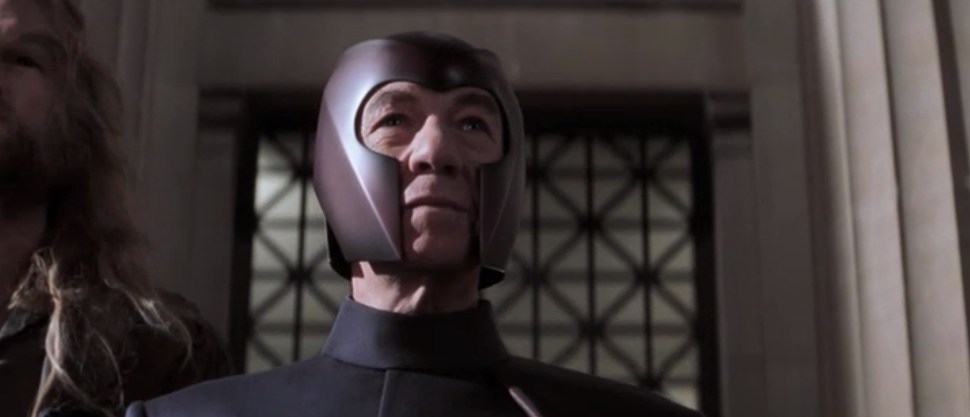
Losing strategy: “Humans are less evolved than mutants; so to punish them I will turn humans ... into mutants.”
Worse, the movie stacks the deck against him. First, he’s willing to kill Rogue, a fellow mutant, to make his enemies powerful. Then his device doesn’t actually work. It transforms humans, yes, but in an unstable fashion, and they wind up dying a painful death. So the X-Men have to stop him for this reason.
“X-Men” is a good movie, eminently watchable, always entertaining. There are several great scenes: the intro of Wolverine, the train station battle, the climax atop the Statue of Liberty. There’s a star turn by Hugh Jackman. He’s a bad ass, but with a sense of solicitude for Rogue that's charming, and a sense of heat for Jean Gray that's palpable. He gets all the good lines.
But imagine a good revisionist take of the movie, in which human beings are as paranoid as we know human beings to be, governments are as cowardly as we know governments to be, and with a FOX-News-type organization spreading fear and propaganda, governments all over the world, and certainly in the U.S., crack down on the moderate, mollifying forces, Professor X and his students, who are captured, incarcerated, tortured and experimented upon. And in the wings, Magneto, our Batman figure, wearing a cruel smile, waits to save the day.
Sunday May 22, 2011
Hollywood B.O.: Pirates' Booty Shrinking But Bridesmaids Got Back
The fourth “Pirates,” “Pirates of the Caribbean: On Stranger Tides,” won the weekend with the best opening weekend of the year, but its openings have definitely fallen over the years:
- POTC: Dead Man's Chest (2006): $135 million
- POTC: At World's End (2007): $114 million
- POTC: On Stranger Tides (2011): $90 million
That's unadjusted. Here's what the numbers look like when you adjust for inflation:
- POTC: Dead Man's Chest (2006): $162 million
- POTC: At World's End (2007): $131 million
- POTC: On Stranger Tides (2011): $90 million
Plus with all those 3-D prices, I wouldn't be surprised if “Pirates” has lost more than half the audience it had in 2006. How does a franchise do that in five years? Here are its Rotten Tomatoes (top critic) numbers:
- POTC: Dead Man's Chest (2006): 41%
- POTC: At World's End (2007): 35%
- POTC: On Stranger Tides (2011): 32%
And I think those numbers are kind. Forty-one percent for “Dead Man's Chest”? I had to see it for this article on Johnny Depp and was too kind myself:
“Pirates of the Caribbean: Dead Man’s Chest” is Depp’s first sequel, and, like most sequels, it’s bigger, louder and longer than the first. The set pieces are overwhelming. Everything is broader, including the comedy. That might not be a good thing.
The point is, you keep building crap and only the moviegoers with drool coming out of the sides of their mouths will keep showing up.
Meanwhile, “Bridesmaids” added 19 theaters and barely dropped at all, only 19 percent, good enough for $21 million and second place. I feel like I'm personally responsible for 100 of those people, I've talked it up so much. The movie's now at $59 million and could eventually make the $100 million mark.
“Thor” fell to earth like Thor falling to earth, slipping 55% to $15.5 million and third place. It now looks like it won't make that $200 million mark I talked up last week. “Fast Five” will, though. It added another $10 million for A domestic total of $186 million.
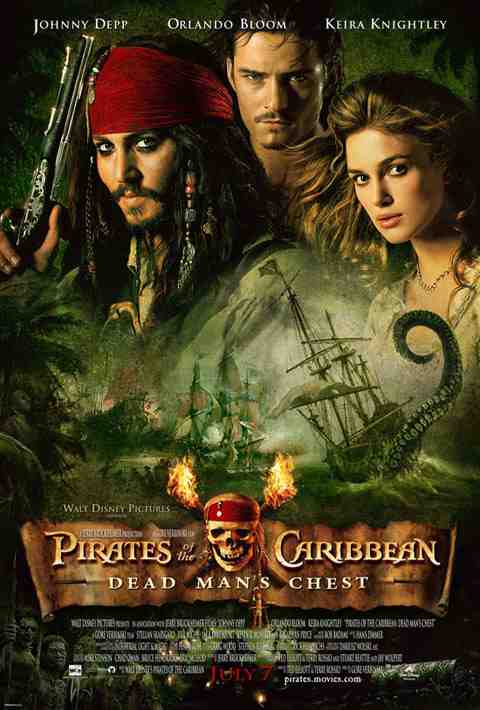
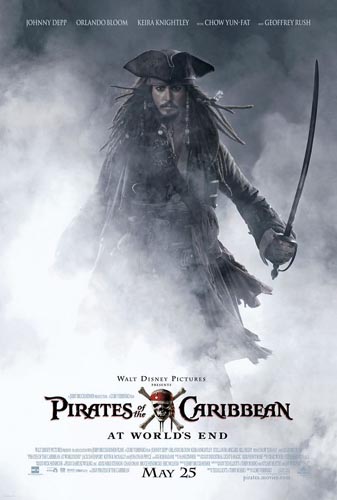
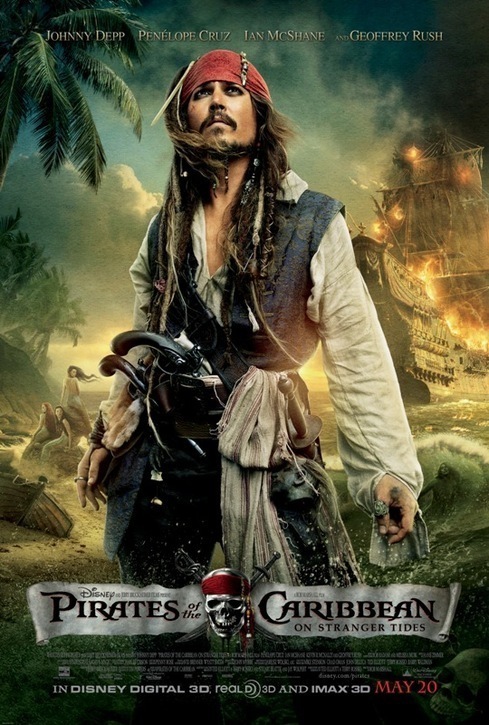
Arrr-ugh.
Sunday May 22, 2011
It was 20 Years Ago Today...
...that I first landed in Seattle: May 22, 1991. Let's just say things didn't go as planned.
I stayed with friends of my sister's in the Ravenna neighborhood, hoofed it around town looking for work, got a job filling in for the friend of a friend at the Chukar Cherry Stand in Pike Place Market, then lost it when the owner of the Chukar Cherry Stand came around and wondered who the hell this guy was selling his product. Hoofed it some more. Keep gravitating to bookstores. Look, books. I know those! Bad idea. I was impressed by the lush landscaping around the city and depressed by the weather: 50s and overcast. By mid-June I wondered if this damned city ever warmed up.
Found a place to live with a couple of art students in a dilapidated house in the University district ($120 a month for a basement room), and a job at the University Book Store nearby. Bought a word processor and wrote and wrote and wrote: short stories, novellas, essays. The personal essays got published on the back pages of Seattle Weekly. The first was about looking for a place to live:
[Shared-housing folks] seemed to be looking for someone who was self-confident but not overtly so, someone who would be involved in the house but not take it over; a clean person but not anal; a funny person but not crude; a person without eccentricities who would tolerate theirs.
I tried to review books at the Weekly, too, but the books editor there, after several months of silence, turned me down. “Your aggressively captious voice,” she wrote, “while it suits your personal essays, would, I feel, overwhelm a book review.” I had to look up “captious”: Overly argumentative. For a book reviewer? My intro to that kind of Seattle disconnect.
One of my new roommates got a cat who got fleas all over my futon. I went from part-time to full-time at the bookstore. I bought and read Paris Review. I kept re-reading A Portrait of the Artist as a Young Man. I kept writing. I kept pressing my nose to the glass.
Anyway, that was 20 years ago today.

Like this, but darker, colder, more crowded, and I was a dude rather than a chick.
Saturday May 21, 2011
The 20 Greatest Games: The Standings
I've been a fan of the MLB Network's 20 Greatest Games series, as you can tell from this post, and this one, and this, and thought it would be cool to see the ultimate standings for the series. Who has the best record in these games? Who's shown up the most? Who hasn't shown up at all?
Here are the league standings for the 20 teams (9 A.L., 11 N.L.) that made the cut:


My Twins on top in the A.L. (Tigers in '09, Braves in '91), while Florida, of all teams, rules the N.L. (Giants in '03, Cubs in '03, Indians in '07). Only three undefeated teams in each league. More losing than winning in baseball.
The bigger question, though, is who's shown up the most. No surprise there:
- Boston Red Sox: 6
- New York Yankees: 6
- Florida Marlin: 3
- Philadelphia Phillies: 3
- Arizona Diamondbacks: 2
- Atlanta Braves: 2
- Chicago Cubs: 2
- Houston Astros: 2
- Minnesota Twins: 2
- New York Mets: 2
- California Angels: 1
- Cincinnati Reds: 1
- Cleveland Indians: 1
- Detroit Tigers: 1
- Los Angeles Dodgers: 1
- Oakland Athletics: 1
- Pittsburgh Pirates: 1
- San Francisco Giants: 1
- Seattle Mariners: 1
- Toronto Blue Jays: 1
Yanks and BoSox again sucking all the air out of the room. Half their games are with the other, in which the Yankees are 2-1, winning the Dent and Boone games, losing the Dave Roberts game, Game 4 of the 2004 ALCS, surely one of the greatest series ever played.
So who isn't even represented on a list in which the Florida Marlins make it three times? Count 'em:
- Baltimore Orioles
- Chicago White Sox
- Colorado Rockies
- Kansas City Royals
- Milwaukee Brewers
- Montreal Expos/Washington Nationals
- St. Louis Cardinals
- San Diego Padres
- Tampa Bay Rays
- Texas Rangers
No Orioles? And no Cardinals? In the last 50 years? So no Gibson or Brock or Brooks or Palmer or Ozzie or Ripken?
And no Royals? I'm thinking of those great ALCSs against the Yankees from '76 to '80. The original list of 50, from which the final 20 were chosen, had two of those games on it, Game 5 in '76 (the Chambliss game) and Game 5 in '77 (Yanks score 3 in top of 9th, win 5-3).
I mean look at this line score:

That's the Chambliss game. Royals up 2-0. Yanks tie it 2-2. Royals up 3-2. Yanks go ahead 4-3. Yanks widen lead 6-3. In top of 8, Royals score 3 to tie it, 6-6. Yanks win it in bottom of 9 with Chambliss homer.
I'm also partial to this game:

Look at that. Royals up, Yanks tie, Royals up, Yanks tie and go ahead, Royals tie and go ahead, Yanks tie and go ahead. But this one didn't even make the 50 nominees. It's Game 3 of the 1978 ALCS. The George Brett three-homer game.
What do you think? What's missing? It's obvious the '60s and most of the '70s got short shrift here. The oldest game on the list is the no. 1 game of the list, Game 6 of the 1975 World Series, the Fisk game, which has grown in stature over the years as the other great games of the period have unfortunately faded.

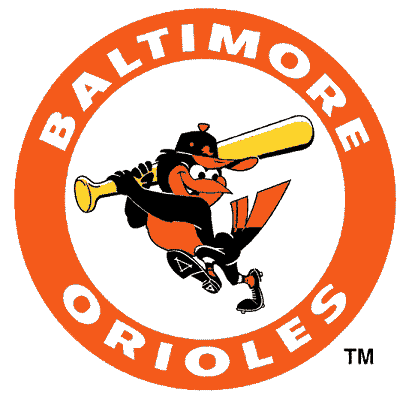

Some of the teams not included in the 20 greatest games of the last 50 years.
Friday May 20, 2011
Quote of the Day
“One thing that stood out about Harmon [Killebrew] was that he always had his hand out to shake your hand when you were a young man. I know, when I came up as a rookie, he had a conversation with me. ...
“He, Richie Allen and Frank Howard hit the high balls that just kept going. It looked like it would be a pop-up. You’d come in for it. Then you’d have to look in the upper deck for it.”
--former Detroit Tigers' slugger Willie Horton on Minnesota Twins slugger Harmon Killebrew, who died of cancer this week.
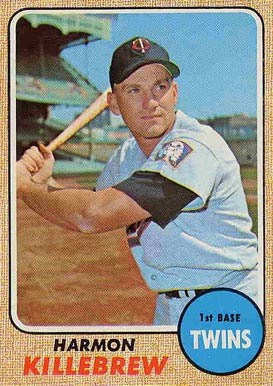

Friday May 20, 2011
Opening Night at SIFF: Corporate Speeches, Technical Difficulties, and Another Seattle-Lite Movie
I first went to Opening Night at SIFF, the Seattle International Film Festival, in 1994. Acclaimed Italian director Bernardo Bertolucci had filmed parts of “Little Buddha” in Seattle a year earlier, and now his film, and he, would open the festival. Quite the coup. He spoke beforehand, talked about how much he liked Seattle, and Elliott Bay Books, and Scarecrow Video, where they categorized films by director as God intended. Then we all settled in to watch his movie, in which Chris Isaak and Bridget Fonda play the Seattle parents of a boy who may or may not be the reincarnation of the Lama Dorje. Co-starring Keanu Reeves as Siddhartha. One minute in, the film broke, and the screen went dark. One can imagine Bertolucci wasn't pleased. When the film finally started again, after a five-minute delay, I wasn't particularly pleased. It wasn't that good. But what the hell, it was Opening Night.
Last night, I went to my second Opening Night of SIFF, which they dubbed a “Gala.” (I“ll refrain from the Groucho Marx reference.) I suited up, talked with Nancy Guppy, who was interviewing people for the festivities, ran into a few friends. Then Patricia and I and a thousand-plus people settled in for the Opening Night movie, ”The First Grader,“ a British film about an 84-year-old Kenyan man, a former Mau Mau warrior, who wants to go to school to learn to read, and who, with the help of a kindly teacher, fights all the forces (bureaucratic, neighborhood) that get in his way. I was hoping it would be better, more complex, than the trailer indicated.
Except we didn't get the movie right away. First, the co-directors of SIFF made speeches. Then they introduced others who made speeches: this mucky-muck from Starbucks; that mucky-muck from the Seattle Sounders; the Mayor of Seattle. Everyone talked about how much the arts meant. Everyone congratulated each other and us for doing our part. This went on for 15 minutes, a half hour, 45 minutes. By the time the film started I was exhausted. The film didn't help. Was Gordon Willis the cinematographer? Because, man, it seemed really, really underlit. Ten minutes in, the screen went dark. A second later the movie started again, from five minutes earlier, lit properly. One of these years they'll get it right.
Will they ever get the Opening Night movie right? In ”The First Grader,“ good-looking people are good; scowling people are bad; the good-looking people win. Set it in America and it's Hollywood fluff. Set it in Kenya and it must be important. So the SIFF thinking seems to go.
What the hell, it was Opening Night.

”Let Maruge in." She must be right because she's so cute.
Friday May 20, 2011
Lancelot Links
- “If there’s a Jewish Miami Cuban homo out there, then that person should rule the world.” Why I love Dan Savage.
- Why I love Paul Simon. During a Toronto show, a woman in the crowd asked him to play “Duncan,” from his self-titled 1971 album, adding she learned to play the guitar with that song. What does he do? Invites her on stage, talks to her over the roar of the crowd, takes off his guitar and straps it to her. And she, and the band, play the song. NPR calls it a moment of pure sobbing joy. It is.
- Oliver Willis on “Why Obama Matters to Black America: High School Graduation Edition.” Great effin' picture.
- “A restaurant is like a shark, it has to constantly move forward or it dies. And I think what we've got on our hands is ... a dead shark.” Right: No more Elaine's.
 Alex Pareene, inspired by Don Trump, gives us five political books doomed before publication, but the one I want to read, for a laugh, didn't even make his top 5: “The Bush Boom: How a Misunderestimated President Fixed a Broken Economy.” That and $200,000 will help you break even on your underwater mortgage. That and $8 trillion will bring the national debt back to Clinton-era numbers. That and a job will help you get a job.
Alex Pareene, inspired by Don Trump, gives us five political books doomed before publication, but the one I want to read, for a laugh, didn't even make his top 5: “The Bush Boom: How a Misunderestimated President Fixed a Broken Economy.” That and $200,000 will help you break even on your underwater mortgage. That and $8 trillion will bring the national debt back to Clinton-era numbers. That and a job will help you get a job.- Back in Law & Politics days, whenever there was a disagreement over commas, apostrophes, capitalization, I'd always ask the managing editor, Mike or Jessica, “What does AKC say? Do what she says.” AKC is Anne Kelley Conklin, our copy editor back then, and the Omar Vizquel of copy editors (she made every play), who now has a must-read blog about all the many ways we're effin' up the English language. I'm anxious to read it everyday. Every day? Still waiting on that post, AKC.
- Our foreign correspondent, Andy Engelson, sees where Tea Party tax-cutting measures, like those in Colorado Springs, will invariably lead us. It's the new Vietnamization.
- The 9/11 Health and Compensation Act, which Jon Stewart helped get passed, has a special master: Sheila Birnbaum of Skadden Arps, whom we profiled, or Phil Dray profiled, two years ago in New York Super Lawyers magazine. It's a good article. Here's a work-day post about it all.
- Finally, as a run-up to bike-to-work day (today), The Seattle Times' Danny Westneat ponders the supposed cyclist/motorist contretemps in Seattle with a comical shrug. Love this quote from Tom Fucoloro, 25, of seattlebikeblog.com. “Most of us are not riding bikes to make a statement or to be negative or to wage war. We're just doing it to ride our bikes.”
Thursday May 19, 2011
Movie Review of the Day: Richard Brody on Bridesmaids
“Sometimes, expectations can do one out of a good movie-going experience. In the magazine this week, David Denby reviews “Bridesmaids,” praising the comic prowess of its star and co-writer, Kristen Wiig, but adding that, here, 'she gives a largely realistic performance… Playing quietly, Wiig is a decent and likable actress, but, for fans of her wild side, she seems diminished, her face a little blank. We wait for her to break out.'
”I didn’t wait for her to break out; rather, I watched the movie, thinking, early on, that it was interesting to see Wiig try out a new comic persona—then, midway through the action, I utterly and literally forgot that I was watching Kristen Wiig, and had the sense that I was seeing some new actress, who was neither Wiig nor anyone else I had ever seen. The role and the performance are utterly transformative, and put Wiig instantly into a different cinematic category ...“
—Richard Brody, ”'Bridesmaids': Something Blue," on The New Yorker site
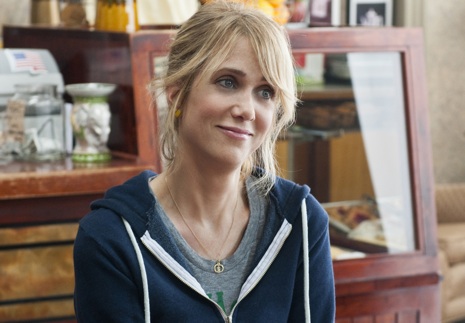
Thursday May 19, 2011
The 20 Greatest Games: The Final Four
I thought I was going to write about each of the final four of the 20 Greatest Games of the last 50 years, as per the MLB Network and its fans, but life has gotten in the way. I've been watching, though.
At the end of my last post on the subject, about No. 5 on the list, Game 6 of the 1986 NLCS, I wrote, “Four more to go. Fisk, Buckner, Twins/Braves ... Reggie?” The first three were no-brainers. But what was the fourth? I assumed Reggie because the promos always touted Reggie. But No. 4 on the list turned out to be ... the Sid Bream game, Game 7 of the 1992 NLCS between the Pirates and Braves. Or should this be the Francisco Cabrera game? It should, shouldn't it? But Bream's slow-motion run to the plate stands out. His slide just before the throw from Barry Bonds in left. Touching the plate just before the Pirates catcher tagged him. Bob Costas, co-host of the show with Tom Verducci, says that if they filmed it in Hollywood, it would've taken umpteen takes to get it as exciting as reality made it. He's right. I was happy it was no. 4—particularly over Reggie oblitering the Dodgers with three homeruns. That's a great achievement but it's not a great game. The Braves thing had never happened before, remember. The final game of a championship series had never ended in the bottom of the ninth, with two outs, and the visiting team ahead by a run, and then with one swing of the bat the home team wins. Never before, never since.
The Bream game being no. 4 also meant the top 3 were now known quantities. It was only a matter of their order. And though no 1 hasn't aired yet (they're doing it Sunday), we know what it is:
3. 1986 World Series, Game 6
2. 1991 World Series, Game 7
1. 1975 World Series, Game 6
Buckner, Morris, Fisk.
The MLB Network has also managed to get the three players identified with these three games to show up and talk about them. Expected, perhaps, with Fisk and Morris, both heroes, but getting Buckner must have been something of a coup. It actually made no. 3 tough to watch. I put it off for weeks. It was like making someone revisit the worst moment of their life—then showing them video of it and filming their reaction to it. It was an Albert Brooks moment.
And Buckner's reaction?
Buckner: That really happened, huh?
Mookie: It really happened.
Mookie. That's the best you got? That's the most solace you can give? After 25 years?
We've gotten that throughout the series, though, haven't we? Mitch Williams in no. 14, watching his younger self being interviewed after giving up the Series-ending homer to Joe Carter; Dave Henderson in no. 8, the hero of the game, having to talk about the subsequent suicide of Donnie Moore, the pitcher who gave up his ninth-inning homerun; Andy Van Slyke, in no. 4, talking about the heartache of it all.
But this was different. This was Fred Merkle or Fred Snodgrass; this was a very good Major League player, with more than 2,700 career hits and a batting title, who would forever be known for the quintessential Little League mistake, the ball between the legs, that would help prevent a team that hadn't won the World Series in 70 years from not winning it again. Baseball can be a cruel game. I like one of the lines Costas quotes, I believe, in no. 2: losing hurts more than winning feels good. That's true. Unless it's the Yankees losing.
At least players like Buckner have the solace of having their game on this list. That's something, I suppose.
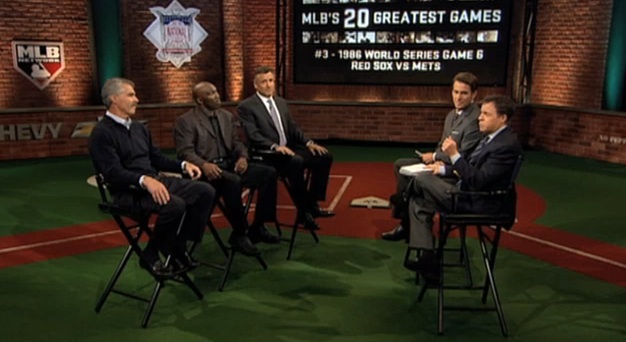
Returning to the scene of the crime: Bob Costas, Tom Verducci, Bill Bucker, Mookie Wilson and Bob Ojeda on Game 6 of the 1986 World Series.

Bill Buckner today: more brave than me; more gray than you.
Wednesday May 18, 2011
Lancelot Links: Harmon Killebrew Edition
There's a lot of great writing out there on Harmon Killebrew, the Twins slugger who died yesterday, at the age of 74, of esophageal cancer. Here are a few favorites:
- The New York Times has a well-written obituary by Richard Goldstein, with a photo that feels like the quintessential Killebrew swing: balanced, extended, all out. They get the story right--born in a farming community in Payette, Idaho, recommended to the Washington Senators by a U.S. Senator, the quantity and quality of the homeruns, the quality of the man--but they also dig up quotes from Fay Vincent's oral history, “We Would Have Played for Nothing.” Then there's this gem:
He made sure that his autographs for young fans were legible.
“I had a doctor’s signature,” the former Twins outfielder Torii Hunter told The Star Tribune in recalling the time Killebrew looked at his autograph several years ago. “I had a ‘T’ and an ‘I’ and a dot-dot. He said, ‘What the hell is this?’ He said, ‘If you play the game this long, make sure people know who you are.’ ”

The bat Harmon used to hit homer #573. (As a Royal, against the Twins.)
- As if on cue, Jim Salisbury tells us why it matters that kids can read your autograph, as he recounts a day outside Fenway Park in 1973 when he met Killebrew. Salisbury got to meet him again in 2007, this time as a professional, and regaled him with the story:
Killebrew could not have been more of a gentleman. He laughed when I told him I thought he was the trainer. He smiled when I thanked him for being so kind to me during that brief 1973 encounter in the underbelly of Fenway Park. “That makes me feel good,” Killebrew said. “I'd hate to think I wasn't nice and respectful to someone.”
A '60s bumper sticker ... now under glass at Target Field.
- Here's that 1963 Sports Illustrated cover story on Killebrew that everyone's been quoting lately—particularly the line about what kind of hobbies he has: “'Just washing the dishes, I guess,' says Harmon, trying to help.” Irony: SI talks up how ignored Killebrew is ... even as their cover story on him doesn't really put him on the cover. The cover is bat and ball. You gotta open the fold-out to see the man himself.
- You can also go to the SI vault and read old articles on the man. I'd always wondered whether, on the heels of Damn Yankees, and with the rise of Killebrew the homerun hitter, if someone made the inevitable Joe Hardy allusion. They did. Then we get this great quote:
“People have been comparing me to Joe Hardy, the hero of the musical Damn Yankees,” Killebrew told the group, referring to the George Abbott-Douglass Wallop hit show of a few years back. “You might be interested to hear what Bob Addie told me the other night after I had struck out against the Yankees to end the game. 'You may look like Joe Hardy to some,' Addie told me, 'but today you were more like Andy Hardy.' ”
- A nice photo gallery from CBS News. But they fail to mention, in photo 11, that those three players—Robinson, Jackson, Killebrew—weren't just 500-homerun guys. They all hit homeruns in that 1971 All-Star Game.
- The Minneapolis Star-Tribune, in their slideshow, gets it right. But who knows what the story is behind the photo of Killebrew and Hank Greenberg. Plus... I mean, The New York Times has been hawking its photos of Mickey Mantle, Lou Gehrig, et al., for years now, and I always thought the Star-Tribune should do the same, from their extensive archive, with photos of Killebrew, Oliva, Carew, Tovar, etc. So far nothing. What—don't you guys need the money?
- Also from the Strib: the fans who gathered at Target Field yesterday. I'm with Kevin Lindquist: “I've never been so sad about [the death of] someone I didn't know.”
- I'd never heard this song, “Harmon Killebrew,” by Jeff Arundel, until today. Jeff: I, too, wrote a letter to Harmon Killebrew about the time you did. That's how I got that autographed photo. That's what came back. BTW: Where did you get the Bob Casey recording? So cool.
- Stats & Info, on ESPN.com, give us of some of Killebrew's stats. They remind us that no one hit more homeruns in the deadball 1960s. Not Aaron, not Mays, not anyone.
- Rob Neyer, over at Baseball Nation, reminds us of the length of those homeruns. It makes me think again that if Killebrew played in a bigger market, a New York or Boston, oh, the stories we'd all know. Oh, the stories we woud've heard on Ken Burns' Baseball (instead of nada):
In 1962, Killebrew became the first player to hit a ball over the left-fieldroof at Tiger Stadium; only three others would accomplish the feat before Tiger Stadium closed 37 years later.
In 1964, Killebrew hit the longest-ever measured home run at Baltimore's Memorial Stadium.
In 1967, Killebrew hit the longest-ever measured home run at Minnesota's Metropolitan Stadium (today the landing spot, 520 feet from home plate, is commemorated by a stadium seat inside the Mall of America).
I had a Twins/Killebrew pennant just like this one in my room when I was a kid. This one is under glass at Target Field.
- ESPN's tribute. Some nice quotes, including this one from Killer: “I found out early in life that I could hit a baseball farther than most players and that's what I tried to do.”
- One of my favorites, of course, which I linked to last week, is Josh Wilker's 2007 post about his 1975 Harmon Killebrew card:
I was just learning the basic language of baseball statistics in 1975, and so took in Harmon Killebrew’s long litany of 40-homer, 100-plus RBI years with the pure and enthusiastic fascination of the true beginner. I have an attraction to anonymous players, to failure and ignominy, to the fallen and the wilkerized, but I am as drawn to the players whose feats stand in bold opposition to the general entropy of the universe as any other baseball fan. I am sure that I found this card soothing. There is greatness in the world. There are things that won’t be forgotten.
- Jim Caple, always a pleasure to read, gives us another nice remembrance.
- Once again, with everyone writing about the same baseball subject, Joe Posnanski again manages to write about the best piece out there. He gets to the heart of the baseball story: those first five fruitless years with the Senators as a bonus baby; how most were resigned to the idea that he would go nowhere; and how, during a 17-game stretch in May 1959, he changed their minds. Posnanski brings up the fact, ignored at the time, that for a six-year stretch, from 1966 to 1971, despite his low batting average, Killebrew led the American League in On-Base Percentage with a .401 mark. Posnanski ends with the great battles between Killebrew and ... George Brunet? Yep! Oh, and there's this choice take on the Idaho Senator who discovered him:
Harmon Killebrew had been recommended to the Washington Senators by an actual senator, Idaho Republican Herman Welker, who would mainly be known to history for two unrelated things:
1. Being so closely allied with the reckless demagogue Joe McCarthy that he became known as “Little Joe from Idaho.”
2. Recommending Harmon Killebrew.
- Finally, here's a nice ESPN piece on reaction, mostly player reaction, to Killebrew's death:
Rod Carew:
Harmon Killebrew was a gem. I can never thank him enough for all I learned from him. He was a consummate professional who treated everyone from the brashest of rookies to the groundskeepers to the ushers in the stadium with the utmost of respect. I would not be the person I am today if it weren't for Harmon Killebrew. He was a Hall of Famer in every sense of the word.Jane Forbes Clark, chairwoman, National Baseball Hall of Fame and Museum
Since joining the Hall of Fame family in 1984, Harmon was a beacon of light among his fellow Hall of Famers, always smiling, always enjoying every moment that life delivered at his doorstep.Tommy John
He never showed you up, no flaps down or anything, just that little number 3 — like Babe Ruth — trotting like he hit 'em before and he would hit 'em again.Bert Blyleven
He was a bigger Hall of Famer off the field.

Harmon Killebrew during Camera Day at Met Stadium, circa 1969. Note the band-aid on his forearm and the airplane in the background. This photo has been on my wall in one room or another, in one city or another, for the last 20 years.
Tuesday May 17, 2011
Harmon Killebrew (1936-2011)
“Speak softly and carry a big stick.”
I first read that phrase in reference, not to Teddy Roosevelt and his vision of America at the turn of the last century, but to my childhood hero, Harmon Killebrew, the Minnesota Twins first/third baseman during the 1960s and '70s. It was the title of a chapter on him in the book Baseball Stars of 1967. So much of life is like that: We learn the allusion before the reference point. But even when I learned a bit of history, of Roosevelt and the Monroe Doctrine, even then “Speak softly and carry a big stick” reminded me more of Harmon Killebrew. It fit Harmon Killebrew better. America never really spoke softly. There was always something loutish about our country. But Harmon Killebrew? In baseball, no one spoke more softly. No one carried a bigger stick.
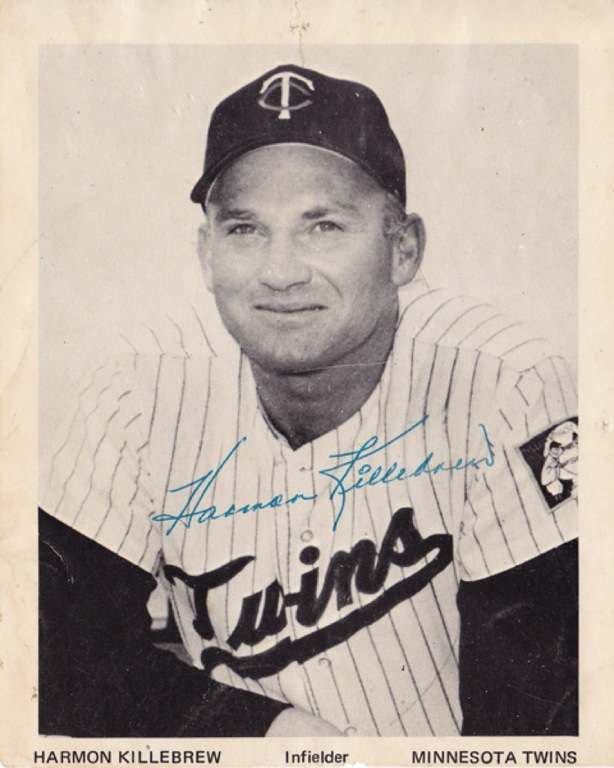 Growing up in mountainless Minnesota, he seemed like a mountain to me: big and powerful and silent and ever present. Back then every August we’d have “Camera Day” at Metropolitan Stadium, in which, before the game, fans would line the warning track and get their pictures taken with their favorite players, who moved slowly around the field, in uniform, carrying bats or gloves. I’ve got photos of myself with Tony Oliva and Rod Carew and Cesar Tovar and Leo Cardenas but not with Harmon Killebrew. Photos with Harmon weren’t allowed. The Twins organization felt there would be such demand, the promotion would bleed into gametime. Instead, he’d moved slowly around the field, alone, his face placid, and we’d watch him from a distance, the way we’d watch a mountain from a distance. Invariably during that game he’d hit a homerun. Or two homeruns? Memories are faulty but I remember that a lot. We’d go to the park, sit in the sun on the wood benches along the left field foul line, and Harmon Killebrew would hit two homeruns.
Growing up in mountainless Minnesota, he seemed like a mountain to me: big and powerful and silent and ever present. Back then every August we’d have “Camera Day” at Metropolitan Stadium, in which, before the game, fans would line the warning track and get their pictures taken with their favorite players, who moved slowly around the field, in uniform, carrying bats or gloves. I’ve got photos of myself with Tony Oliva and Rod Carew and Cesar Tovar and Leo Cardenas but not with Harmon Killebrew. Photos with Harmon weren’t allowed. The Twins organization felt there would be such demand, the promotion would bleed into gametime. Instead, he’d moved slowly around the field, alone, his face placid, and we’d watch him from a distance, the way we’d watch a mountain from a distance. Invariably during that game he’d hit a homerun. Or two homeruns? Memories are faulty but I remember that a lot. We’d go to the park, sit in the sun on the wood benches along the left field foul line, and Harmon Killebrew would hit two homeruns.
This was around 1969, the year the Twins won the first A.L. West division championship, the year Harmon Killebrew won his first and only MVP award. He led he league in homeruns (49), RBIs (140), walks (145), intentional walks (20), and On-Base Percentage (.427). It was the seventh time in his career he hit over 40 homeruns in a season. He would do it once more, in 1970.
He deserved that award. He probably deserved to win it earlier. In 1962, he led the league in homeruns, with 48 (no one else was even in the 40s), and RBIs with 126, but he came in third in the balloting to two Yankees: Mickey Mantle, who had better percentage numbers but 200 fewer at-bats and 18 fewer homeruns, and Bobby Richardson, who hit .300 but never walked and never had much power. Folks focused so much on batting average back then. Bill James hadn’t come along yet to correct matters.
How much was he overlooked by the national press? He retired fifth on the all-time homerun list with 573, with only Aaron, Ruth, Mays, and Robinson ahead of him, and it still took him four years to get into the Hall of Fame. I was in college by then, focused on other matters, but it still bugged me. He played way away in Minnesota, where we speak softly, and so the Baseball Writers Association of America gave him only 59.6% of their vote in 1981, then dropped him to 59.3% in 1982, but ratcheted up to 71.9% in 1983, the year Brooks Robinson, in his first year of eligibility, and Juan Marichal, in his third year of eligibility, made the cut. Harmon would have to wait another year. And even then he finished behind Luis Aparacio and his .653 OPS. Harmon’s was .884.
By the 1990s I was living with several other people in Seattle, and one day, in the room of my friend Mike, I watched an ESPN rebroadcast of the 1971 All-Star Game in Detroit, which is memorable for the towering homerun Reggie Jackson hit off the transom in right field—one of the longest homeruns ever recorded for television. But the game turned out to be memorable for another reason. One after another, famous players, Hall of Fame players, hit homeruns: Johnny Bench in the 2nd, Hank Aaron in the 3rd, Reggie Jackson and Frank Robinson in the bottom of the 3rd. In the top of the 6th, Harmon entered the game, replacing Norm Cash at first base, and I was excited enough by that, happy enough to see that. Then in the bottom of the 6th, against Fergie Jenkins, Al Kaline led off with a single and Harmon came up and promptly hit a homerun to left. I went bananas. To Mike’s amusement, I began cheering as if the game were new, as if it weren’t 20+ years old. Roberto Clemente added another homerun in the 8th, and that was all the scoring, all on homeruns, all by six Hall-of-Fame players, including no.’s 1, 4, 5 and 6 on the then-all-time homerun list. Clemente’s homer went to center but all the others went to right, because the wind was blowing out to right. Only Harmon went deep to left, where the wind was blowing in. It felt like a piece of my childhood, watching that homerun. It always feels like a piece of my childhood when I see Harmon Killebrew swing.
Harmon died this morning, at the age of 74, of esophageal cancer.
A gentleman. You’re going to hear that word a lot in the next few days. In Bob Showers’ book, “The Twins at the Met,” that’s the word the other players use for him again and again:
Jim Kaat
Harmon was a gentleman, he was easygoing and he never lost his temper.Frank Quilici
Harmon was the first guy to shake my hand when I joined the Twins. He exemplifies class. Although he never sought the leadership role, Harmon was the quiet leader of the ballclub. He is probably the most respected Hall of Famer in baseball.Rod Carew
You want Harmon to be the role model for your child, because that’s how special he is. Even today, he’s still the same Harmon Killebrew that I met for the first time in 1964. He hasn’t changed at all.Bert Blyleven
When you talk about class, Harmon has to be no. 1. He’s the nicest gentleman I’ve ever been around.Tony Oliva
Harmon is so nice—he’s too nice to be a ballplayer.
My friend Jim Walsh provided a link to an old promo for the local Minnesota show “Kent Hrbek’s Outdoors,” in which Herbie went fishing with Killebrew; and Killebrew, to the camera, says something you don’t hear many people, let alone ballplayers, say. He says: “The reason we’re here on Earth is to love and help one another.”
Jim adds, “Turns out there is crying in baseball.”
My father, 79, gives tours at Target Field, and he says he already chokes up when talking about Harmon. He quotes Harmon’s Hall of Fame acceptance speech. As a kid, Harmon's mother complained that the boys were running around too much and ruining the grass. “We’re raising boys, not grass,” his father replied. That’s the line that gets my Dad. Now he worries how he’ll handle himself on upcoming tours. He hopes he doesn’t break down.
This is a sad month in a sad year for me. I attended a memorial in Minnesota in January, and two more this month in Seattle, all for friends who died too young. At some point you think you’re inured, particularly to the deaths of people you never knew personally, but that’s not that way. That’s not the way now anyway. This one still hurts.
Kent Hrbek, who provided his own Minnesota memories, was one in a long line of “Next Harmon Killebrews” the Minnesota Twins organization trotted out in the 1970s to try to make up for the void Harmon left behind. Craig “Mongo” Kusick was another. But the organization should have known. There is no next Harmon Killebrew.
Rest in peace, Harmon. Touch 'em all. And thank you.
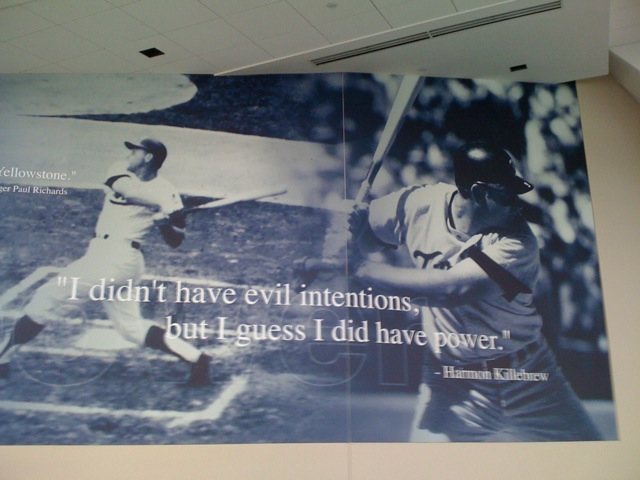
On the wall during the Target Field tour.

My nephew Ryan, 7, goes deep next to the statue of Harmon Killebrew outside Target Field in downtown Minneapolis: May 2010.
Tuesday May 17, 2011
M's Game: Smoak and Mirrors
“The Mariners are doing it with Smoak and mirrors.”
—my friend Jim McCloskey sitting with me at the M's game last night, which the M's won 5-2 over the Minnesota Twins. It's Jim's contention that the Mariners only have two Major Leaguers in their everyday lineup—Ichiro Suzuki  and Justin Smoak—and yet we got to see another victory. Ringing doubles, solo homeruns. Back-to-back homeruns by Adam Kennedy and recent call-up Carlos Peguero. When was the last time I saw the M's do that at Safeco? 2003? Another great pitching performance by Michael Pineda, who's a top tier rookie-of-the-year candidate. In the 9th we saw some shoddy defense and overmanagement by Eric Wedge as he needlessly went to his bullpen to relieve a reliver. But still a victory.
and Justin Smoak—and yet we got to see another victory. Ringing doubles, solo homeruns. Back-to-back homeruns by Adam Kennedy and recent call-up Carlos Peguero. When was the last time I saw the M's do that at Safeco? 2003? Another great pitching performance by Michael Pineda, who's a top tier rookie-of-the-year candidate. In the 9th we saw some shoddy defense and overmanagement by Eric Wedge as he needlessly went to his bullpen to relieve a reliver. But still a victory.
Smoak now has the 8th-best OPS in the American League: .933. The next-best Mariner is 58th, Ichiro, with .700. Among the bottom seven in the league you'll find three Mariners: Miguel Olivo at .535, Brendan Ryan at .525, and dead last, Michael Saunders at .483. Smoak and mirrors, indeed.
Oddly, I'm 3-0 at Safeco this year. The law of averages salivates at the thought of my return.
Monday May 16, 2011
Movie Review of the Day: Anthony Lane on Thor
“Some Gods have all the luck. When the hero of ‘Thor’ plummets to Earth, from a far corner of the cosmos, in a storming thunderbolt, the first thing he sees upon waking is the face of Natalie Portman. Not a sheep, or a branch of Subway, or a rainy day in Pittsburgh but, I repeat, Natalie Portman. He must think he has died and gone straight back to Heaven ...
”Once Thor stirs, the film itself comes belatedly to life.The first twenty minutes or so have been spent in otherworlds, reachable only by intergalatic wormholes. One is Asgard, a haven of golden towers ruled by Thor's father, the one-eyed Odin (Anthony Hopkins), and closely modelled on the cover of every mid-seventies concept album you wished you'd never bought ...
“‘Thor,’ in fact, is the year’s most divided movie to date; everything that happens in the higher realms, vaguely derived from Nordic legend, is posturing nonsense, whereas the scenes down here are managed, for the most part, with dexterity and wit.“

Welcome to Earth.
Monday May 16, 2011
Johnny Damon for 3,000 hits and the Hall?
Tyler Kepner had me smiling with the first part of the first sentence of his Sunday New York Times article about Johnny Damon and the pursuit of 3,000 hits:
Reverse the letters on the back of Johnny Damon’s jersey...
Nomad. Nice.
Kepner lost me with the first sentence of the third graph:
Damon has played for six [teams], but he will always be identified mostly with the Yankees and the Boston Red Sox, his teams for four years apiece.
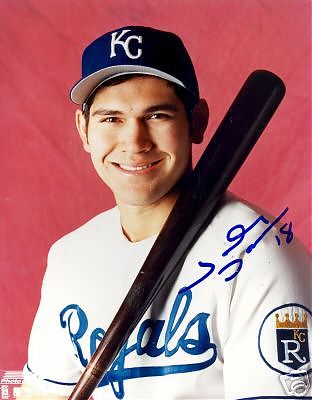 Really? No one thinks of him with the Kansas City Royals anymore? His rookie team, and the team he played on for six seasons? Am I that old? Is Tyler Kepner that young? That New York-centric?
Really? No one thinks of him with the Kansas City Royals anymore? His rookie team, and the team he played on for six seasons? Am I that old? Is Tyler Kepner that young? That New York-centric?
As for the thrust of the article? Damon has his eye on 3,000 hits and the Hall of Fame:
If he gets 150 hits this season, he would have 2,721. Two more years of 140 hits each would then put him at 3,001.
Damon turned 37 last November. So he'll have to do this at 37, 38 and 39. It can be done but he'll have to remain healthy and in the American League, where he can DH. He'll also have to hit well enough for a team to want him. In the last four years, his batting average has gone from .303 to .282 to .271 to, so far this season, .254. His On Base Percentage this season, perhaps reflecting his drive to get hits and only hits, is an abyssmal .289.
But the most interesting aspect of the article is Damon's talk about how the pressure of playing in New York might have kept previous Yankees, before Jeter, from getting to 3,000 hits:
“I mean, I commend people who can play in those markets [New York and Boston] their entire career. I guess that’s why there’s never been a 3,000-hit guy for the Yankees. The city adds a couple of years on them. Even though it’s the best city in the world, there’s that grind. When you leave for the ballpark, you’re like, ‘O.K., it’s time to be on.’
Initially I blanched at this, too. C'mon, I thought. Ruth didn't do it because he pitched for Boston for five years and then as a position player walked all the time, and Gehrig, of course, stopped playing at the age of 35, and DiMaggio lost years to World War II, and Mantle, he had all those injuries, plus he drew walks as well, and Mattingly, I guess he never did come close, did he, and Bernie Williams was never really close, either, and ...
I stopped for a moment. Is it the pressure? Or is it the fact that getting 3,000 hits for any one team is pretty difficult? Only 27 players have managed 3,000 hits in baseball history—many are recent additions aided by the DH rule—and of those 27, only 15 accumulated more than 3,000 hits for any one team. Two of those teams are twice represented—the Pirates (Wagner and Clemente) and the Tigers (Cobb and Kaline)—which means only 13 of the 30 Major League teams have had a player who accumulated 3,000 hits solely for them. Less than half. Not easy.
Of course the Yankees are one of the original 16 teams, and a storied franchise. One would think they'd have had a player do it by now. But you'd also think that of the Dodgers, too. And the Phillies. And the White Sox, Athletics, Indians and Senators/Twins. Nope, nope, nope, nope, nope and nope. Of the original 16, just nine have had 3,000-hit players. Jeter, with the Yankees this year, will be the 10th.
After that, no team is close. Vizquel split playing time. Same with I-Rod and A-Rod. Maybe Ichiro with the M's but that's still a long haul. Maybe Pujols with the Cards but he's a free agent at the end of the year. Plus they're already covered. Musial.
So I don't know if it's tougher in New York — although I wouldn't be surprised since many things are tougher in New York. At the least, though, highly touted prospects should keep this in mind before signing with the Yankees. They should keep in mind Johnny Damon's thoughts about leaving New York after the 2009 season:
“Being in Detroit last year kind of made you sit back and say, ‘Wow, baseball could be actually pretty fun and enjoyable.’"
Sunday May 15, 2011
Hollywood B.O.: Thor Strong, Bridesmaids Bridesmaids (But Strong, Too)
Last weekend I wondered if “Thor,” grossing only $66 million opening weekend ($65.7, it turned out), could become a $200 million movie. This weekend is a good step in that direction. On early estimates, the movie only dropped 47.5 percent from its opening, raking in $34 million to finish in first place.
Why is that good? In a chart of superhero movies similar to “Thor” (that is: non-sequels or reboots), “Thor” has the sixth-lowest second-weekend drop:

And, really, the first two movies on this chart don't even count, being released in 1978 and 1989, respectively, which are different eras in movie distribution. So “Thor” is really fourth. And of those four, only one, “Spider-Man,” grossed more opening weekend.
More importantly, look at the movies behind it: “Iron Man” and “Dark Knight,” both of which had great word-of-mouth.
I'm assuming “Thor”'s word-of-mouth isn't as good, since the movie isn't as good. But the movie isn't “Fantastic Four” bad so the drop-off isn't “Fantastic Four” bad. Which is good news for Paramount and Marvel and the God of Thunder.
Meanwhile, my favorite comedy of the year, “Bridesmaids,” opened well, with an estimated $24.4 million in 2,918 theaters. Have you seen it yet? Do you need a laugh? Go. Spread the word.
“Fast Five” added 131 theaters and fell off only 39.8 percent from its second weeked to finish third. At $168 million, it looks poised to become the year's first $200 million movie.
“Priest,” opening in 2,800+ theaters to bad reviews, finished fourth, with $14.5 million.
Box Office Mojo's totals here.

Wiig salutes the happy couple: Thor and Jane Foster.
Saturday May 14, 2011
Movie Review of the Day: Macdonald on Bridesmaids
“Watch any of the scenes between Wiig and Rudolph and you'll see something rarely shown in the movies: that giggly, affectionate way that longtime female friends talk to each other; the way they completely relax in the other's presence, over the kind of breakfast-at-a-coffee-shop or wine-at-Lillian's-apartment date they've had a hundred times before. You completely believe the friendship between these two (the way we didn't believe Kate Hudson and Ginnifer Goodwin in ”Something Borrowed“) and it lights up the movie.”
—Moira Macdonald, in her Seattle Times review, “Bridesmaids: Comedy Says 'I Do' to Female Friendship,” describing exactly how I felt about these scenes in “Bridesmaids,” the best comedy of the year.

Saturday May 14, 2011
Movie Review: Bridesmaids (2011)
WARNING: SPOILERS EN BLANC
I’m not sure at what point I decided “Bridesmaids” was the funniest movie of the year.
Certainly not during the opening sex scene between Annie (Kristen Wiig) and good-looking douchebag Ted (Jon Hamm). That was hilarious, capturing some aspect of the absurdity of sex, but obviously way too early in the movie to be making such a call. Nor during Annie’s post-coital breakfast conversation with best friend Lillian (Maya Rudolph), and their down-to-earth riffing on the inevitable sexual migration of men’s junk toward women’s faces. (“Why do they do that?”) That was too early in the movie, too. I wasn’t a fan of Annie’s customer interaction at the jewelry store—too much like an SNL skit—nor the grossness of her clueless British roommates, although the girl’s line, “I didn’t know that was your diary; I thought it was a very sad, handwritten book,” made me, again, laugh out loud. Was it everyone losing it at the upscale wedding shop, Belle en Blanc, because of food poisoning? The danger inherent in white carpet. Lillian crumpling, in white wedding dress, nine-tenths of the way across the street to a bathroom (“It’s happening, it’s happening, it’s happening” she cries) and then, like a fallen soufflé, remaining there, forlornly waving traffic past her.
 At some point, though, as the laughs kept coming even as the plot picked up, I thought: “This is the funniest movie of the year.” And I don’t just mean so far. We’re in May but I’m already saying this: “Bridesmaids” will be the funniest movie I see in 2011. I haven’t laughed so hard in a long time.
At some point, though, as the laughs kept coming even as the plot picked up, I thought: “This is the funniest movie of the year.” And I don’t just mean so far. We’re in May but I’m already saying this: “Bridesmaids” will be the funniest movie I see in 2011. I haven’t laughed so hard in a long time.
What was that again, Hollywood, about women not being funny? In a recent New Yorker profile on Anna Faris, “Airplane” director David Zucker, grasping, says, “Maybe women have a built-in dignity, and if a woman slips on a banana peel...” His voice trails off. Now I’m not sure if anyone has built-in dignity, or if any dignity is built-in, but the food poisoning scene is particularly funny because they’re women: because of our assumptions about women and women’s assumptions about themselves. Men are sloppy beasts but what women want—the white carpet, those awful taffeta dresses, things named Belle en Blanc—requires a kinder, prissier world than the one we live in, and there’s humor in the gap.
In the very next paragraph of that article, Keenan Ivory Wayans, who was never funny, and who brought to our sad attention a whole host of brothers who were never funny, weighs in about the vanity of actresses impeding their efforts at comedy. “If Will Ferrell was a girl, and she's got a belly and a hairy back, she's not running down the street naked.” Did Wayans ever see Wiig as one of the Merrill sisters? Or as crazy McCain lady? Or as Jamie Lee Curtis pitching Activia yogurt? Wiig has been the funniest person on the planet for a while, ruling SNL when she was on it, stealing scenes in movies like “Knocked Up,” and now, in this script she co-wrote with Annie Mumolo, who plays her airplane seatmate in the film, she’s front-and-center in all of her awkward glory.
Much of the film is actually conventional. Annie’s life is in the crapper—her bakery, Cake Lady, was a victim of the recession—when her best friend, Lillian, gets engaged. She tries to be happy for her but can’t help but compare where she and Lillian are both heading. Then she meets Lillian’s new best friend, and maid of honor rival, Helen (Rose Byrne), who lives up to the model—she’s pretty, rich, connected, and outwardly sweet—and in Annie’s attempts not to lose Lillian, she loses Lillian. She takes the bridesmaids to the restaurant where they get food poisoning, she forces their Vegas bachelorette party to land in Casper, Wyoming, she throws an insane fit at Helen’s insanely over-the-top wedding shower. And that’s that. The thing she fears the most meets her halfway.
She’s her own worst enemy. She keeps going back to the wrong guy (Ted), keeps ignoring the right guy, Irish cop Rhodes (Chris O’Dowd). She loses her job, is forced to move home with her mother (Jill Clayburgh, the original unmarried woman), and winds up crying on the couch to Tom Hanks in “Castaway.” We’ve seen this kind of thing before yet it feels different here. It’s funnier, yes, but it also feels truer. The way people try to talk Annie out of her downward spiral and the way she doesn’t listen. There’s a scene where, after Rhodes encourages her to bake again, she does, she bakes a glorious cupcake, topped with all kinds of candied configurations. Then she stares at it on the counter, unhappily. Then she eats it, unhappily. Not because she wants the cupcake, one assumes, but because she doesn’t want to make the cupcake. Because baking isn’t satisfying what it used to satisfy.
The friends, too, the bridesmaids, feel familiar yet aren’t. There’s the oddball heavyset one, the Zach Galifianakis character, Megan, played by Melissa McCarthy, who’s butch and frighteningly straight and comedically straightforward. She’s the most genuine of the women in that she doesn’t have an ideal she’s trying to live up to or that people are imposing upon her. Near the end she physically wrestles with Annie (“I’m Annie’s life! I’m Annie’s life!”), trying to get her to fight back; then she talks about how she had to learn to fight back in high school. Megan only stops being funny for a second, and in that second she’s quite poignant.
All the women, all the bridesmaids, are poignant and funny; all are dealing with the gulf between the assumed expectation and their own reality. Becca (Ellie Kemper of “The Office”) is the cute newlywed, of the perfect new marriage ... where the sex with her germaphobic husband isn’t working. Rita (Wendi McLendon-Covey) has the opposite problem with her husband. “Sometimes I just want to watch ‘The Daily Show’ without him entering me,” she says. Lillian is the focus of all this whirling activity, but she’s scared of all she’s leaving behind. Even Helen, behind the rich, pretty facade, is small and scared. She’s all pinpoint management skills with, she knows, no true friends.
But it’s in Annie that this gulf between expectation and reality is most visible and most comic. In an early scene, the manager of the jewelry store (Michael Hitchcock, of “Best in Show” fame), trying to get her to show customers the “love is eternal” look to help sell jewelry, calls over a hot young thing with a ludicrous name, Kahlua (Kali Hawk), who, between flirtations with the manager, demonstrates. Then Annie tries. The manager frowns. “Looks like you have menstrual cramps,” he says.
It’s not that the gulf between expectation and reality is inevitably funny. It’s that Kristen Wiig brings out the awkward humor in the situation better than almost anyone.
The filmmakers, including director Paul Feig, director of episodes of “The Office” and “Arrested Development,” get all the details right. The setting is Milwaukee in all its lakefront glory, the soundtrack is full of songs sung by women, we get ’70s standup comic Franklyn Ajaye—Franklyn Ajaye!—as Lillian’s father. Most importantly, the friendship between Annie and Lillian feels real and deep. You know The Bechdel Test from the comic strip “Dykes to Watch Out For”? Quote: “I only go to a movie if it satisfies three basic requirements. One, it has to have at least two women in it, who, two, talk to each other about, three, something besides a man.” “Bridesmaids” is her movie. True, Annie and Lillian talk about men. But they also bring out the inner goof in each other. They drop the facade. That’s what friends are for.
Friday May 13, 2011
Quote of the Day
“I was just learning the basic language of baseball statistics in 1975, and so took in Harmon Killebrew’s long litany of 40-homer, 100-plus RBI years with the pure and enthusiastic fascination of the true beginner. I have an attraction to anonymous players, to failure and ignominy, to the fallen and the wilkerized, but I am as drawn to the players whose feats stand in bold opposition to the general entropy of the universe as any other baseball fan. I am sure that I found this card soothing. There is greatness in the world. There are things that won’t be forgotten. ...
 ”Harmon Killebrew had basically been playing baseball forever. The first few years, which occurred long before I’d even been born, were spent on a team, the Senators, that no longer even existed. They were, like the wooly mammoth and tyrannosaurus rex, long extinct. And yet, here was one of them, an Original Senator, alive and well and still grayly slugging home runs. I was drawn to this not only for its mysteriousness but also for the odd feeling of comfort it gave me. I sensed at times that I was an infinitesimally small speck, inconsequential and frail in an unfathomably large expanse not only of space but of time. The universe went on forever and time stretched forward and backward forever and I was an almost-nothing within it. But Harmon Killebrew was something, and I could hold onto Harmon Killebrew.“
”Harmon Killebrew had basically been playing baseball forever. The first few years, which occurred long before I’d even been born, were spent on a team, the Senators, that no longer even existed. They were, like the wooly mammoth and tyrannosaurus rex, long extinct. And yet, here was one of them, an Original Senator, alive and well and still grayly slugging home runs. I was drawn to this not only for its mysteriousness but also for the odd feeling of comfort it gave me. I sensed at times that I was an infinitesimally small speck, inconsequential and frail in an unfathomably large expanse not only of space but of time. The universe went on forever and time stretched forward and backward forever and I was an almost-nothing within it. But Harmon Killebrew was something, and I could hold onto Harmon Killebrew.“
--Josh Wilker, ”Cardboard Gods," on that 1975 Topps Harmon Killebrew card. All the more poignant after today's news.
Friday May 13, 2011
Movie Review: Certified Copy (2011)
WARNING: SPOILERS
WARNING: SPOILERS
WARNING: SPOILERS
“Certified Copy” is the kind of foreign film that turns on most American movie critics and turns away most American moviegoers. The film is confusing and unknowable, the main characters erudite and insufferable, the settings exotic and confined and possibly nightmarish. It’s the kind of film that requires subterfuge to sell. The U.S. trailer, for example, gives us beautiful shots of Tuscany, and Juliette Binoche in full middle-aged flower, and an implied, heavy romanticism. Then these words appear on the screen:
a writer in search of meaning
an art dealer in search of originality
one day
two strangers will play
a game of seduction
Let’s break down each of these:
a writer in search of meaning
Is British essayist James Miller (William Shimell) really in search of meaning? I thought he just wanted to get out of town. He wants to be in the sun. He’s more like a writer in search of simplicity. He’s tired of the life of the mind and wants to live the life of the moment.
an art dealer in search of originality
This is said of Elle (Juliette Binoche), she of the best middle-aged cleavage I’ve seen in years. But she’s not in search of originality. She’s in search of romance, of connection, just like the women who will see this film. Ultimately they’ll be as disappointed as she.
Finally:
one day
two strangers will play
a game of seduction
This is the biggest lie of all since this is the one game they don’t play. From the start, when you think they are merely strangers (as, indeed, they might be), he is distant and she is testy. There is no flirtation, no exploration, no curiosity. It’s flat. If movies tend to give us the blossoming of love without the prickliness of the relationship, “Certified Copy” gives us the prickliness of the relationship without the blossoming of love.
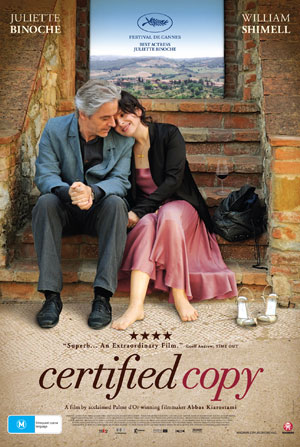 The movie begins with Miller at a small literary gathering in Tuscany, reading from his latest book, “Certified Copy,” in which he posits that “the copy has value in that it leads us to the original and satisfies its value.” This idea, this theme, is played with immediately. The book itself is a copy, a translation of the original, and is in fact more popular in Italy than the original is in Britain. Miller’s apologetic line as he arrives late, “I would blame the traffic but I walked here,” is a copy, or unintentioned repetition, of the translator’s earlier apologetic line for Miller’s tardiness. Meanwhile, Elle, sitting in the front row with the translator, has to deal with her copy, a teenaged son, who wants to leave and get something to eat.
The movie begins with Miller at a small literary gathering in Tuscany, reading from his latest book, “Certified Copy,” in which he posits that “the copy has value in that it leads us to the original and satisfies its value.” This idea, this theme, is played with immediately. The book itself is a copy, a translation of the original, and is in fact more popular in Italy than the original is in Britain. Miller’s apologetic line as he arrives late, “I would blame the traffic but I walked here,” is a copy, or unintentioned repetition, of the translator’s earlier apologetic line for Miller’s tardiness. Meanwhile, Elle, sitting in the front row with the translator, has to deal with her copy, a teenaged son, who wants to leave and get something to eat.
And we’re just starting.
The next day Miller meets Elle in her antique art shop, walks in circles for several minutes while he waits for her, giving us, over and over, his image, his copy, reflected in the antique mirrors. This will happen with many mirrors, and many windows, throughout the film.
Finally Elle shows up, they get into her car and drive out into the Tuscan countryside. “I can’t believe you’re in my car,” she says, like a groupie, but he remains distant, chin up. He’s not a snob, he’s just ... disinterested. Like a husband hanging with his wife for the five thousandth day. Why put on a show? The two are obviously getting to know each other but without the feel, the spark, of getting to know each other.
In another small Tuscan town, known for its weddings, she takes him to see a work of art, thought to be an original, now known to be a copy, and thus valued less. Should it be valued less? Isn’t it just as valuable as before? He talks about it for a bit, then gets cranky and begs off. One can tell he’s already tired of the subject. Just as we’re tired of him.
Things pick up at a small café when he steps outside to take a phone call. The patron of the place (Gianna Giachetti), a wise woman, assumes he and Elle are husband and wife, and engages Elle in conversation about men in general. Most men sleep in on a Sunday morning, she says. Look at your husband: dressed up, taking you out for coffee. True, he didn’t shave, but… Elle plays along. She even comes up with a not-bad story about how he only shaves every other day, and their wedding happened to fall on a non-shave day, so he didn’t bother simply because it was a non-shave day. When he returns, Elle informs him what’s going on and outside they continue the charade, talking like they are married. She get a phone call—from her son—and afterwards she complains about her son, how he never thinks, and Miller takes the general view that kids live in the moment, which is a good way to live. Her response—“You might be living your life, he might be living his life, but you’re both ruining me!”—sounds like a wife’s response. One of her next responses—“When was the last time the three of us had breakfast together?”—is a wife’s response.
And like that they’re suddenly a couple. Without any of the fun involved with being a couple.
They argue about a statue in the piazza, they argue about wine in a restaurant, they argue over the fact that he fell asleep last night, on the night of their 15th wedding anniversary, as she was preparing herself in the bathroom. She looks at the young couples getting married in the town with nostalgic eyes. Oh, to be young and in love again. There’s a nice moment, in the restaurant, when she’s waving through a window at newlyweds she’d met earlier. They try to talk through the window but none can hear the other. As if a distance of 15 years, rather than a mere pane of glass, separates them.
So were they a couple before and we just didn’t realize it? In the beginning, when she gets one of his books signed for her son (Adrian Moore), her son, who looks like a mop-topped, French, Elijah Wood, teases her as to why she didn’t bother with his surname. What was she hiding? This sets her off.
Is that what she was hiding? The same surname? The fact that le fils est son fils?
But acclaimed Iranian writer-director Abbas Kiarostami seems to be going for something bigger than a case of mistaken identity. As the day progresses, as evening falls, as he follows her into a church and then into the garret of the hotel where they spent their honeymoon 15 years earlier, and she lounges seductively on the bed (the only real moment of seduction in the film), and then seems to suddenly vanish, leaving only him, and then not him, just bells tolling in the background, one gets a sense of a relationship, or a life, lived in a day. Of life sped up. That sense that we know who we don’t know, and don’t know who we know, and how it all goes so quickly. He’s getting at the very instability of life.
Yet I didn’t like the movie much.
I’m all for instability. But neither character is particularly likeable: She demands too much, he is present too little. They’re not even interesting, in the way that Jake LaMotta, another unlikeable character, is interesting. They’re just annoying.
The film is shot beautifully but I may be growing tired of the old directors’ tricks of obfuscation and directness—of dialogue spoken either off-camera or directly to the camera.
The theme of the validity of copies is interesting but ... how does it relate to the shifting, unsettling relationship between Elle and James? Is Kiarostami playing with the original, the genuine, so that by the end we cannot tell between the genuine and the false, the original and the copy? And if so, is this profound? It feels less profound to me than what I’ve described above: the instability of life.
Overall, there’s just not enough pleasure here. Early in the movie, Miller, defending the simplicity of Elle’s sister, says that the problem with the human race is that we’re the only group of animals “who forgets that the whole purpose of life, the whole meaning... is to have pleasure.”
There are pleasures in “Certified Copy” but not enough for a recommendation.
Thursday May 12, 2011
Quote of the Day
''He always speaks with huge enthusiasm about the actors he's worked with and the performances he's seen. He's recently discovered the talents of Bette Davis. He said to me the other day — and this is where his youth can be alarming — he said, 'Have you ever seen a movie called ''All About Eve''?' I said, 'Yes, I have heard of it.'“
--Sir Ian McKellen on director Bryan Singer in ”An Unusual Choice for the Role of Studio Superhero," by Bernard Weinraub: The New York Times, July 9, 2000
Thursday May 12, 2011
Lancelot Links
- State Sen. David Hann (R-Eden Prairie, Minn.) recently introduced a cost-cutting measure that would remove 15,000 single adults from MinnesotaCare and give them vouchers to buy their own health insurance. He argued that this would be better for the state, since it would save money, and better for the individuals, since it gave them a choice. Then Sen. Barb Goodwin (DFL-Columbia Heights) rose and said, basically, “If it's so good, why don't we try it first?” Cue silence followed by sputtering and harrumping. Hann's cost-cutting measure passed but will be vetoed by Gov. Mark Dayton. But good for Goodwin! Full story by Doug Grow at MinnPost.
- Not done yet, the Minnesota Senate then approved a constitutional amendment to ban same-sex marriage, 38-27. The house is expected to pass it, too. WTF has happened to my home state? Remember Minnesota Nice? This is Minnesota Nuts. Minnesota Backwards. Minnesota On-The-Wrong-Side-of-History. Minnesota Shame.
- The sponsor of that bill, who doesn't want a small majority to define marriage (oddly, he's not talking about his own group), and who cited a poll saying 3/4 of the state want to vote on the matter, is named Sen. Warren Limmer of Maple Grove. Here's his website. It includes his email address. He says “Contact me by e-mail.” Please do. I did.
- My wish? Every one of these guys had to be cross-examined by David Boies.
- If that doesn't work, Dan Savage.
- Over at the New York Times, Paul Krugman gives us “2000s 101” in case anyone needs a refresher. And judging from ... everything, m
 ost people do.
ost people do. - Rolling Stone magazine gives us The People v. Goldman Sachs. I'd like to hear more on this.
- One of the nice things about the Seattle International Film Festival, or SIFF, which is opening in week, is that you can see films before New York and LA. Case in point: Last May, I saw “City of Life and Death” and reviewed it here. A year later, Manohla Dargis finally gets off the schnied. (P.S. We don't agree.)
- This year's SIFF schedule is out. The problem, of course, as always, is finding the time to sort through the hundreds of movies available to see what you want to see. Anyone done this yet?
- Meanwhile, at Cannes, Woody Allen's “Midnight in Paris” opened the festival. Mostly to applause.
- Finally, The Grand Salami, the alternative Seattle Mariners program for which I wrote for many years, is finally doing something with its website. It's also on Facebook.
Wednesday May 11, 2011
Quote of the Day
 “The city for the first time in its long history is destructible. A single flight of planes no bigger than a wedge of geese can quickly end this island fantasy, burn the towers, crumble the bridges, turn the underground passages into lethal chambers, cremate the millions. In the mind of whatever perverted dreamer might loose the lightning, New York must hold a steady, irresistible charm.”
“The city for the first time in its long history is destructible. A single flight of planes no bigger than a wedge of geese can quickly end this island fantasy, burn the towers, crumble the bridges, turn the underground passages into lethal chambers, cremate the millions. In the mind of whatever perverted dreamer might loose the lightning, New York must hold a steady, irresistible charm.”
-- E.B. White, Here is New York, 1949
Wednesday May 11, 2011
What Brings You Here
The questions:
- what did odin whisper to mjollnir
- what is the fifth thing sucker punch
- why does clooney kill the girl at the beginning of the amercian?
- what does “down on strikes” mean?
- who sent the threatening emails in the girl who kicked the hornets nest?
- what happens to Sean on Source Code
- what makes Breaking Away a great movi
- what song does specialist angel toves play in restrepo
- where did restrepo play in theaters
- dreams of my father who was regina
- Did Humphrey Bogart play batman
The statements:
- Hanna, rebuttal
- kick ass suker [sic] punch rotten
- limp bizkit yankees hat
- jeter's first hit
- birthday lyric 47
- the director as illusionist, scorsese
- white ribbon I don't get it
The long quotes:
- No it's not. Those people were fighting for something; for a cause. To them out there, this is just entertainment.
- One of the boys I dated, and they were boys, suggested that we go to Paris and I said I'd always wanted to see Paris. As if I'd never been
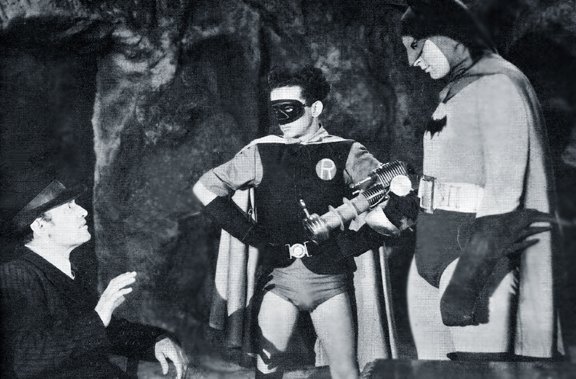
“The cheaper the crook, the gaudier the patter.” Dude might have been looking for this.
Monday May 09, 2011
Hollywood B.O.: Thor Opens Better than Hulk, Fantastic Four and Daredevil; Worse than Wolverine, Iron Man and Spider-Man
When is a $66 million opening weekend a meh opening weekend? When it's a tentpole superhero movie (“Thor”), released into nearly 4,000 theaters (3,995), during the first weekend of May (prime movie real estate).
Here are the big grossers for the first weekend of May during the last few years:
- 2010: “Iron Man 2” ($128m)
- 2009: “X-Men Origins: Wolverine” ($85m)
- 2008: “Iron Man” ($98.6m)
- 2007: “Spider-Man 3” ($151.1m)
You'd have to go all the way back to 2006, and Tom Cruise's “Mission Impossible III” to find a lower opening gross, $47.7m, than the $66 million “Thor” pulled in.
I'm sure Paramount and Marvel Entertainment were hoping for an “Iron Man,” or even a “Wolverine.” Instead “Thor”'s open is closer to “Hulk” ($62m in 2003) and “Fantastic Four: Rise of the Silver Surfer” ($58m in 2007). It's the 55th biggest opening weekend ever, which ain't bad, but adjust for inflation and it falls to 101st, behind such tentpole flicks as “The Waterboy” and “Scooby Doo.” And “Hulk” and “Fantastic Four.”
So we know “Thor” won't be a $300 million movie. But can it be a $200 million movie? To do so, it would have to triple its opening weekend total, i.e., make opening weekend 33 percent of its overall gross. That's doable, but would require some strong legs. “Iron Man” did it in 2008. Its opening weekend was 31 percent of its overall gross. But “Iron Man” had great word-of-mouth and cast-iron legs.
On the plus side, “Thor” has already grossed $176 milliion overseas. Asgard's box office: n/a.
In other news, “Fast Five” dropped fast. It finished second for the weekend but dropped 62.3 percent from the previous weekend.
The thunderous totals here.

Strong arms, yes, but you lift with your legs.
Sunday May 08, 2011
WSF WTF
Anyone know the methodology the Washington State Ferry System uses for exiting the Bainbridge Island ferry (either the Puyallup or Wenatchee) once you hit Seattle? Most of the time, we're able to jog left and then head east onto Marion, through (and up) downtown Seattle, and straight toward our home on First Hill.
Occassionally, like this afternoon, we'll be directed to the right and onto Alaskan Way heading south, where there are no left turns for several blocks. We have to drive all the way down to King Street, nearly to Safeco Field, before we can turn left and head in the direction we want. And almost every time this happens, as with this afternoon, a Mariners game is just getting out. Which means all of us are being forced to drive toward a massive, cluster-f***ed traffic jam. We're adding to the problem rather than avoiding the problem.
So anyone know the methodology? Why sometimes Marion, why sometimes Alaskan Way, why sometimes both?
And why force us toward Safeco as M's games are just getting out?

I like riding it; it's the exit that can sometimes be a pain.
Saturday May 07, 2011
Movie Review: Thor (2011)
FORSOOTH: SPOILERS!
I was never much of a fan of Thor. Even in my comic-book-collecting heyday, 1974-77, I’d buy almost any comic before “The Mighty Thor.” It was partly the Shakespearean language, partly his dull alter ego, Dr. Donald Blake, partly the marble-shitting pomposity of Asgard and Odin as well as the vagueness of Thor’s powers (what couldn’t that hammer do?), but you put them all together for the biggest reason of all: How could anyone relate? Dude was a god. World War II-era super soldier serum, sure. Proportional strength of a spider, why not? Gamma radiation-infused Jekyll-Hyde transformation, of course. But who let the god into the room?
The five screenwriters of the new feature film, “Thor,” as well as its director, Sir Kenneth Branagh, do a not-poor job of making the Son of Odin, God of Thunder and Lord of Lightning relatable. Unfortunately, they also weigh him down with that marble-shitting backstory.
 The movie begins simply enough. In the New Mexican desert, two scientists, Jane Foster (Natalie Portman) and Erik Selvig (Stellan Skarsgard) and a less-brainy, more relatable assistant, Darcy Lewis (Kat Dennings), are tracing atmospheric magnetic yadda yaddas from space, see the sky open, drive their science van toward it, and literally crash into a man (Chris Hemsworth) who seems to come out of nowhere. That, in fact, is what Jane wonders aloud. “Where did he come from?”
The movie begins simply enough. In the New Mexican desert, two scientists, Jane Foster (Natalie Portman) and Erik Selvig (Stellan Skarsgard) and a less-brainy, more relatable assistant, Darcy Lewis (Kat Dennings), are tracing atmospheric magnetic yadda yaddas from space, see the sky open, drive their science van toward it, and literally crash into a man (Chris Hemsworth) who seems to come out of nowhere. That, in fact, is what Jane wonders aloud. “Where did he come from?”
CUT TO: A thousand years ago.
At that time, in Scandinavia, Frost Giants (yes, giants made of ice) were trying to create a new ice age when the Asgardians interrupted and war broke out. Asgard won. This explains 1) Odin’s eye patch (he lost his eye in battle), 2) Norse mythology (the primitive earthlings took the Asgardians for gods), but not, 3) How Thor and Loki became part of Norse mythology since they were just babies at the time. Did they make trips back? To party? Passeth the Aquavit.
Odin (Anthony Hopkins), the dullest of all characters, takes two spoils of victory back with him to Asgard: the cube-like source of the Frost Giants’ power, and, unbeknownst to us until the last act, an enemy baby, who becomes Loki (Tom Hiddleston), the god of mischief, and whom he raises as his own—as, one could say, a potential rival to his own son, Thor. “Only one can ascend to the throne,” he tells the two boys, “but both of you were born to be kings.” Right. No rivalry will be born of that.
As for the God of Mischief, we rarely see him being mischievous. Dour, more. Bummed. He’s Cain to Thor’s Abel, envious, skulking, manipulative. When Thor (Hemsworth) comes of age, as a strong, outgoing and happy man, and is about to be crowned king in place of Odin, Loki creates a diversion, an alternative pathway for the Frost Giants to arrive and attempt to retrieve their source of power. They’re foiled but it creates a royal schism: Odin counsels diplomacy, Thor demands war. It’s a king’s decision, he says. “But you are not ... king,” Odin tells him, and there goes the coronation.
Of course, Thor, easily manipulated by the ear-whisperings of Loki, takes four friends, including Volstagg (Ray Stevenson, who played the Punisher), and Hogun (Tadanobu Asano, who played the lead in “Ichi the Killer”) to Jotunheim to battle the Frost Giants. Odin may counsel against war but it’s what we in the audience want. It’s actually a helluva battle, and the filmmakers make good imaginative 3-D use of Thor and his hammer, Mjöllnir, as the throws it, whirls it, creates shock waves around the planet with it. But the incident sets Odin off, and he strips his son of his powers and banishes him to Earth ... where he runs into Jane Foster, or she into him. I.e., We’re back at the start. After a half hour in that rarefied, Asgardian air.
(Side thoughts: Early on, Asgard is described as “a beacon of hope” ... but to whom? Themselves? And if they’re so enlightened, why rule by royalty? Are we doing it wrong here in America? Finally, how exactly does a father strip his son of powers? Is it an Asgardian thing? A Scandinavian thing? As a Lundegaard, should I be worried?)
On Earth, Thor veers between the comic and romantic. Slow to realize his powers have been stripped, he still acts imperious and martial. “You dare threaten Thor with so puny a weapon?” he says to Darcy, before she tases him, bro. At the hospital, he has to slip out of his restraints rather than break free of them. He slams a cup of coffee on the ground and demands more. Did he do this in Asgard? Is he a royal asshole? And why imperious with coffee cups but gentle with fair maidens like Jane Foster? Because the Asgardians, models for the Vikings, always treated women with such respect?
And has this happened to Thor before? For someone stripped of massive powers, he’s pretty fine with it. He’s still got a “Wait and see” confidence rather than a “Will I make it back?” concern. It’s not until he locates Mjöllnir in a nearby crater—which every local yokel has tried to lift (cue Stan Lee cameo), and around which the U.S. government agency S.H.I.E.L.D. has built a veritable institution—and he, too, Thor, son of Odin, can’t lift it, that reality, or his new impotent reality, sinks in. He grows despondent. Then of course he grows wiser. As powerful people who lose their power always, always do.
The hammer scene is pretty good. He sneaks in, takes down a half-dozen government agents, and makes it to Mjöllnir while, behind him, a marksman we know to be Hawkeye (Jeremy Renner, anticipating “The Avengers”) takes aim. “Oh, don’t do that,” I thought. “Let him try.” The movie agrees. Agent Coulson (Clark Gregg), whom we’ve seen hanging around since “Iron Man” in 2008, tells Hawkeye, “Let’s see what happens.” Of course nothing happens. He’s not worthy yet. What’s written in Marvel comics often gets spoken in Marvel movies—“with great power comes great responsibility,” etc.—and here it’s the words originally written on the side of Mjöllnir in Journey Into Mystery #83: “WHOSEVER HOLDS THIS HAMMER, IF HE BE WORTHY, SHALL POSSESS THE POWER OF ... THOR.” In the movie, Odin whispers those words to Mjöllnir before banishing it and Thor to Earth. So we’re waiting for him to become worthy. Or we’re waiting for someone to become worthy. Is there a Dr. Donald Blake in the house?
So how does an ancient god become worthy of his hammer? By acting like a New Testament God. When Loki takes over Asgard from an Odin in the midst of “Odin-Sleep” (yeesh), and sends some giant monster to kill Thor so he can never threaten Loki again, Thor, powerless, confronts the monster anyway ... and dies. He sacrifices himself to save others. That’s the worthy moment. Mjöllnir flies to his hand, he defeats the monster, and flies back to Asgard to battle Loki. Then he displays his newfound, New Testament wisdom not by annihilating the Frost Giants, as he wanted to do in the beginning, but by destroying the rainbow bridge between Asgard and other worlds in order to save the Frost Giants from the wrath of Loki. More self-sacrifice. He gives up his newfound love, Jane Foster, pretty Natalie Portman, in order to save his enemies. Then we get the usual post-credits teaser for “The Avengers” in 2012.
“Thor” isn’t a bad superhero movie. Hemsworth makes a credible hero—both proud and comic—Portman is perfect in a limited role, and the few moments of Jeremy Renner’s Hawkeye should create a buzz. (He has like three lines of dialogue but every one is cool.) It’s a good intro for Thor and a good, continued set-up for “The Avengers.” But...
In “Origins of Marvel Comics,” Stan Lee’s 1974 book on the superhero enterprise he dreamed up nearly 15 years earlier, the section on Thor is titled, probably in tongue-in-cheek reference to an oft-used caption, “Meanwhile, Back in Asgard...” And that’s the problem with the movie. There are too many “Meanwhile, back in Asgard” moments. Just as we’re getting psyched about Thor’s adventures in New Mexico, Meanwhile, back in Asgard... That’s going to cut into its positive word-of-mouth.
I still can’t relate to Thor. He still seems all brawn and no brain to me. He still seems a better match for Darcy, the hot regular girl, than Jane, the pretty, prim scientist. Odin is still as interesting to me as a roomful of air.
But verily they did try.
Friday May 06, 2011
Which Star Trek Series Would You Like to Guest On?
In one of those increasingly popular polls on Facebook, my friend Tim, of StarshipTim, who was also Captain of the U.S.S. Brock during that big Romulan-Borg hullabaloo, answered the question “What [Star Trek] series would you like to guest on?” with “Star Trek: Deep Space Nine.” No surprise. He's been big on that series for a while.
I answered the original series, the one with Kirk, Spock and McCoy, TOS to fans, and relayed my reasoning to Tim in a series of posts:
- The miniskirts alone answer that question for me.
- Plus I want the pointy sideburns, the boots, and my shirt torn and the trickle of blood during a fight. Hopefully with Finnegan.
- Plus I want to ignore the Prime Directive at my discretion.
- But it's mostly the miniskirts.
I'm not saying it wouldn't be dangerous...

“Klingons? Attacking? What?”
Friday May 06, 2011
Forsooth, Today Verily is the Day!
The 2011 Vintage Marvel Comics calendar that Patricia gave me for Xmas features, for the month of May, an old Thor cover—to be precise, Journey Into Mystery #123, with the Mighty Thor—which, given the movie being released today, feels entirely appropriate. For a time, in fact, I wondered if the calendar makers had done this intentionally but it seems merely serendipitous. Avengers #4, with that great, energetic Jack Kirby cover, “Captain America Lives Again!,” was featured in January, while the movie, “Captain America: The First Avenger,” is slated for a July release.
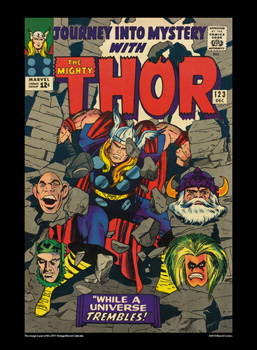 The Thor cover is also a Jack Kirby cover, and also features the hero moving toward the viewer, but there's less movement in it. He feels musclebound and turgid. As did Thor, to me, as a kid. I was never a fan and rarely bought the comic. That corny Shakespearean dialogue. Asgaard. Odin and Loki. Lame med student Don Blake goes for a walk, sees aliens, flees into a cave, gets trapped, uses a stick to try to free himself but accidentally taps the stick on the ground in such a way that he turns into THOR and the stick turns into THE HAMMER OF THOR and he defeats the aliens and becomes this new superhero in the Mighty Marvel Manner. Later we learn, and he learns, that Don Blake is the fiction and Thor the reality. Still didn't appeal. Despite the fact that all Lundegaards get weekends free in Asgaard. It's a double-a thing.
The Thor cover is also a Jack Kirby cover, and also features the hero moving toward the viewer, but there's less movement in it. He feels musclebound and turgid. As did Thor, to me, as a kid. I was never a fan and rarely bought the comic. That corny Shakespearean dialogue. Asgaard. Odin and Loki. Lame med student Don Blake goes for a walk, sees aliens, flees into a cave, gets trapped, uses a stick to try to free himself but accidentally taps the stick on the ground in such a way that he turns into THOR and the stick turns into THE HAMMER OF THOR and he defeats the aliens and becomes this new superhero in the Mighty Marvel Manner. Later we learn, and he learns, that Don Blake is the fiction and Thor the reality. Still didn't appeal. Despite the fact that all Lundegaards get weekends free in Asgaard. It's a double-a thing.
Which means, to me, today's movie doesn't have much to live up to.
But dig that Journey Into Mystery cover caption: “While a Universe Trembles!” So over-the-top it couldn't be anything but Silver Age Marvel.
Thursday May 05, 2011
Lancelot Links
- Josh Wilker writes about why he only writes about baseball cards. Then he writes about Stephen Siller, a firefighter who died on 9/11 in a way that upends his reasoning for why he only writes about baseball cards. And if you're wondering why the George Brett card? Stick around.
- What Jim Walsh wrote on Sept. 11, 2001.
- Andy's parents visit Hanoi.
- Norman Mailer's Manhattan home is up for sale. Shouldn't we be making this into a museum? I'm serious.
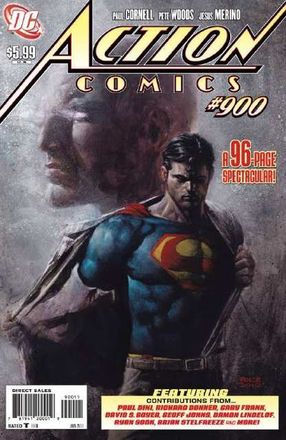 Just as President Obama releases his long-form birth certificate, Superman, the Man of Steel, renounces his U.S. citiizenship. Of course he never had it. He's an illegal alien who got past our defenses during less vigilant times. Bill O'Reilly's going to do a special on why Supes needs to get kicked out of Metropolis.
Just as President Obama releases his long-form birth certificate, Superman, the Man of Steel, renounces his U.S. citiizenship. Of course he never had it. He's an illegal alien who got past our defenses during less vigilant times. Bill O'Reilly's going to do a special on why Supes needs to get kicked out of Metropolis.- The birther controversy feels so over in the wake of the Osama bin Laden news, but this video, “Show me your papers, Negro,” is still worth watching. It'll piss you off all over again.
- From Salon's Alex Pareene: “A patriot's guide to still hating Obama for killing Osama.” One wonders when the right is going to start targeting Pareene himself. One anticipates with what wit Pareene will respond.
- The way Pres. Obama presented the Osama bin Laden news wasn't exciting enough for you? Pareene reimagines the event with the image makers of the Bush adminstration still in charge.
- From the Onion: The five-year-old screenwriter of “Fast Five.” Brilliant.
- ESPN columnist Jayson Stark's stats are always fun. Here he looks at the first month of the baseball season. His rookie of the month? The guy I saw win his first game on April 12.
- I only cheer for the White Sox when they're playing the Yankees. Last month, Brent Lillibridge had me cheering.
- The NY Times' Ben Shpigel on Derek Jeter's lousy start. Shpigel talks batting average when it's really about the slugging percentage. Sure, Jeter's 2011 average is off by 63 points from his career total (.250 vs. .313); but his slugging percentage is off by nearly 200 points (.269 to .450). A bargain at $15 mil per. The Yankees and their money are soon parted.
- Michael Cieply on the battle between theater owners (and James Cameron) vs. the major studios, who want to release films sooner, or immediately, to pay-per-view. I like the theater experience but admit to watching a few newly released films on PPV lately, including “The Housemaid” and “Certified Copy.” It ain't the same but it's easier on a Friday night.
- William Campbell started out with dreams as big as anyone, I'm sure, but in the end he's known for playing a Klingon and being married to the woman who had affairs with both JFK and Sam Giancana. Which is more than most of us will be known for.
- Finally, check out Patricia's big brother, Alex Bradbury, marine biologist, who was once one of Bill Nye's “way cool scientists,” on Deb Slater's “Experience Northwest” show. They're clam digging, and then clam cooking, at Birch Bay State Park. Alex is a natural and the show is well-named. That slate gray sky? That chill wind? Yes, I've experienced it. Every day for six months.
Thursday May 05, 2011
From the Archives: My 1996 Interview with Jeff Bezos - Part II
In October 1996, 15 months into his run as founder and CEO of amazon.com, I interviewed Jeff Bezos for The Seattle Times. It was all new to me: both the Internet and interviewing people. I was actually singularly wrong for the role. I went in ready to talk about literature, about which, it turns out, Bezos didn’t know much, and we wound up talking about technology and business issues, about which I knew even less. The resulting Q&A still feels valuable from an historical perspective. Part I can be read here.
How do you get your list of books together?
We get the bulk of our data from book wholesalers who have computerized inventory data bases of their own, which they use to manage their warehouse operations. We get data from the Library of Congress. And we get data directly from publishers. Any 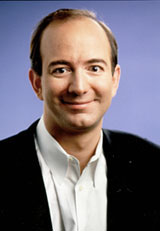 publisher can come to our website and one of the links at the bottom of the home page—there is one that says “Is there an author in the house?” and there's another one that says “Calling all publishers.” A tiny fraction of the data we actually enter by hand.
publisher can come to our website and one of the links at the bottom of the home page—there is one that says “Is there an author in the house?” and there's another one that says “Calling all publishers.” A tiny fraction of the data we actually enter by hand.
Which books are the big sellers?
We sell everything, but we are probably disproportionately strong in literary fiction, science fiction, and computer books, Internet books, things you would expect. But we also sell a huge amount of romance novels. We sell a disproportionately small number of romance novels, but romance is such a huge category. It's a small piece of a huge pie.
Do you have a favorite book?
It used to be Dune. I'm sort of a techno-geek, propeller-head, science-fiction type, but my wife got me to read Remains of the Day and I liked that a lot. I also like the Penguin edition of Sir Richard Francis Burton's biography
Bugs in the system?
There aren't any bugs per se but there are things we want to do better; and there are whole new things that we want to do.
Such as?
We want to increase the amount of customer-to-customer interaction that we have, and increase the amount of customer-to-author interaction. We want to set the store up so we can redecorate the store for each individual who walks in; so you can set up a series of preferences and say, “I never read romance; don't ever show me any romances.”
What do you mean?
The whole page would be personally designed for you. So if you said, “I really love literary fiction”...etc., well, here's a great science ficton novel that we actually think you'd like based on your preferences in literary fiction. Stuff like that. In case you want to broaden out.
It would all be done automatically. It would have to be. The way it might work is you might come in and we present you with a list of 100 books that are in a particular genre, like literary fiction, let's say, and you would rate the ones you liked the most and disliked the most, and based on what you liked and disliked the computer would be able to form a profile of your particular tastes, and it might try to match you up with people of similar tastes. You call that your affinity group. What are things you haven't read that people in your affinity group love? And then it would recommend those things to you.
Are there other on-line booksellers?
There are more than a thousand on-line booksellers. We are by far the largest and best-known and the one doing the best job of customer service. There’s Book Stacks Unlimited in Ohio--they only offer about 400,000 titles. We discount our prices and they don't. We discount the top 300,000 bestsellers from 10 percent to 30 percent. Again, that's almost twice as many titles as the largest physical bookstores even carry.
We can afford to do that because we have such a lower cost structure. Our desks are made of doors. We spend money on things that matter to customers. We have the world's best servers—we use digital alpha servers—64-byte machines with a gigabyte of RAM and all this stuff. We hire only the most talented computer programmers.
How will all of this affect physical bookstores?
I think you'll see a continuation of the trend that's already in place, which is that physical bookstores are going to compete by becoming better places to be. They'll have better lattes, better sofas, all this stuff. More comfortable environments. I still buy about half of my books from physical bookstores and one of the big reasons is I like being in bookstores. It's just like TV didn't put the movies out of business—people still like to go to the movie theater, they like to mingle with their fellow humans—and that's going to continue to be the case. Good physical bookstores are like the community centers of the late 20th century. Good physical bookstores have great authors come in and you can meet them and shake their hands, and that's a different thing. You can't duplicate that on-line.
Now there's a whole series of stuff that we're going to do on-line that you could never do in a physical bookstore; and we're doing some of that now. Any customer, any browser, anyone in the world, can come to amazon.com and review any book on our bookshelves; you can't do that in a physical bookstore. What are you going to do--put yellow 3M post-its on the spine?
How do you police that?
On a daily basis we have people who read through all the submissions and weed out the ones that are frivilous; but it's an incredibly small number of people who actually do that. We had God review the Bible. We had J.D. Salinger review Catcher in the Rye. It was very funny. The person who did that one actually had a terrific sense of humor. But we just get rid of it.
But if you want to trash a book, that's fine with us. If you want to come in and say “I thought this was John Grisham's worst book ever; he should be embarrassed by foisting this on us. It's not as good as Time to a Kill, blah blah blah,” that helps people make purchasing decisions; and that's fine with us.
Our whole editorial department gets together the third Tuesday of every month--or something like that--at one of their houses, and they sit and read through all of these and make the decisions. [There are] eight people in the department.
Why call it “amazon”?
The amazon is the earth's biggest river and we’re the earth's biggest bookstore.
How many employees do you have now?
Just over 100. We opened the store almost fifteen months ago, July 16th, 1995, and we've been growing at 34 percent a month, which is basically unheard of. That annualizes to more than 3000 percent a year. We've been in four different offices in the last fourteen months, always moving because we don't have enough space—both in terms of our staff and our warehouse space. We're about to move our warehouse again. We've shipped books now to over 95 different countries.
Anything new on the horizon?
We've made it possible for any website on the entire Internet to have their own bookstore in association with amazon.com. No matter how small or big your website, you can add a bookstore to it. And we pay you 8 percent of revenues for any order you send us through your bookstore. It costs nothing up front. All you have to do is come to our homepage and fill out an on-line application form; we give you a special ID number and you encode in the URL that you use to point to the books in our catalogue. That special ID number allows us to track where the books came from.
We've had this open now for just over two months. It’s called the Associates Program, and we already have over a thousand websites. There's one Associate who has a website that sells meteorites. This guy knows everything about meteorites but you could never set up in the physical world a store that just sold books on meteorites. It would never make any money.
I came up with the idea by trying to figure out "How can amazon.com become experts on all 300,000 Library of Congress narrow niche subject categories?” There's just no way. But there are such experts out there. And they already have websites. Let them do it.
--October 1996

Wednesday May 04, 2011
From the Archives: My 1996 Interview with Jeff Bezos - Part I
In October 1996, 15 months into his run as founder and CEO of amazon.com, I interviewed Jeff Bezos for The Seattle Times. It was all new to me: both the Internet and interviewing people. I was actually singularly wrong for the role. I went in ready to talk about literature, about which, it turns out, Bezos didn’t know much, and we wound up talking about technology and business issues, about which I knew even less. The resulting Q&A still feels valuable from an historical perspective ...
So how did you come up with the idea for this company?
In the spring of '94 I came across this guy named Quartermain. At that time he was collecting statistics on Internet growth. He had a web page where he did this.
Nobody knew, nobody had a clue, how many people were on-line. What you could measure, and what Quartermain was measuring, was the rate of Internet growth. He set up ... sniffers so he could measure, at certain key points going past on the Internet, these packets of data and see what protocol they were in; and if they were in http protocol he knew they were web packets. So because he wasn't measuring the whole Internet, just these choke points, he didn't even know what the base usage of the Web was. But he could measure very accurately the rate of growth; and the rate of growth was 2300 percent a year. I had never seen anything grow at 2300 percent a year.
 At the time I was working for a very specialized investment bank in New York City called D.E. Shaw and Co. It is, unarguably, the largest quantative hedgefund in the world. What they did was they made lots and lots of tiny little trades—computers decided all the trades—and all the trades were made based on inefficiencies in the equity and bond markets. Totally technologycentric. Very similar to amazon.com in that sense. In other words, amazon.com is not a technology company per se but we're a completely technologycentric company—we live and die by the computer programs we write—and D.E. Shaw was the same way but in the realm of finance.
At the time I was working for a very specialized investment bank in New York City called D.E. Shaw and Co. It is, unarguably, the largest quantative hedgefund in the world. What they did was they made lots and lots of tiny little trades—computers decided all the trades—and all the trades were made based on inefficiencies in the equity and bond markets. Totally technologycentric. Very similar to amazon.com in that sense. In other words, amazon.com is not a technology company per se but we're a completely technologycentric company—we live and die by the computer programs we write—and D.E. Shaw was the same way but in the realm of finance.
I was one of four senior people [at D.E. Shaw] who helped to run that company, ran a couple of the firm's profit centers; but this startling growth statistic of 2300 percent a year sort of pried me out of there. I said “This is interesting. What kind of businesses can you do on the Web that would actually make sense?” It had to be a business where the value proposition to the customer was incredibly high, because this Web technology was completely in its infancy. It's immature. There are lots of inconveniences associated with using it: your modem line hangs up on you, your call-waiting clicks in and everything goes crazy, there are so many points on the Internet where things don't work right. Images take a long time to download. So if you're going to get people to use your service on-line, whatever it is, you have to be offering something with an incredibly strong value-proposition to make them willing to put up with that large level of inconvenience.
I looked at several different areas and finally decided that one of the most promising ones is interactive retailing. Then I made a list of 20 products, and force-ranked them, looking for the first-best product to sell on-line.
 In the top five were things like magazine subscriptions, computer hardware, computer software, and music. The reason books really stood out is because there are so many books. Books are totally unusual in that respect—to have so many items in a particular category. There are one and a half million English-language books, different titles, active and in-print at any given time. There are three million titles active and in-print worldwide in all languages. If you look at the number two category in that respect, it's music, and there are only about 200 thousand active music CDs. Now when you have a huge number of items that's where computers start to shine because of their sorting and searching and organizing capabilities. Also, it's back to this idea that you have to have an incredibly strong value proposition. With that many items, you can build a store on-line that literally could not exist in any other way. It would be impossible to have a physical bookstore with 1.5 million titles. The largest physical bookstores in the world only have about 175,000 titles. It would also be impossible to print the amazon.com catalogue and make it into a paper catalogue. If you were to print the amazon.com catalogue it would be the size of seven New York City phone books.
In the top five were things like magazine subscriptions, computer hardware, computer software, and music. The reason books really stood out is because there are so many books. Books are totally unusual in that respect—to have so many items in a particular category. There are one and a half million English-language books, different titles, active and in-print at any given time. There are three million titles active and in-print worldwide in all languages. If you look at the number two category in that respect, it's music, and there are only about 200 thousand active music CDs. Now when you have a huge number of items that's where computers start to shine because of their sorting and searching and organizing capabilities. Also, it's back to this idea that you have to have an incredibly strong value proposition. With that many items, you can build a store on-line that literally could not exist in any other way. It would be impossible to have a physical bookstore with 1.5 million titles. The largest physical bookstores in the world only have about 175,000 titles. It would also be impossible to print the amazon.com catalogue and make it into a paper catalogue. If you were to print the amazon.com catalogue it would be the size of seven New York City phone books.
So here we're offering a service that literally can't be done in any other way, and, because of that, people are willing to put up with this infant technology.
That's actually one of the huge cost advantages we have over physical bookstores: We don't have to inventory all the books. Even the ones we do inventory we don't have to inventory in expensive retail real estate; we inventory in very inexpensive warehouse space.
If you look on our website, every book has its own web page, and one of the things that's on each book's web page, is what we call the availability status. So we're telling our customers what the availability is on each individual title. There are five different availability categories: There are things that are usually shipped within 24 hours; things that are usually shipped within 2-3 days; thngs that are usually shipped within one to two weeks; things that are usually shipped within four to six weeks; and there's a fifth category, not yet published, shipped when available.
So the books that we actually inventory in our warehouse are the ones that are marked “shipped within 24 hours.” Those are the best-selling books.
 Then there are about 400,000 titles—keep in mind that's more than twice as many titles as you'd find in the largest of the superstores—that we can ship within 2-3 days. Those we get from wholesalers, like Pacific Pipeline, or Ingram, the world's largest book warehouse is in Roseberg, Oregon, another reason why we're located in Seattle. They have more titles than in any single warehouse in the country. We use a network of about a dozen different wholesalers to provide us with rapid access to the 400,000 best-selling titles.
Then there are about 400,000 titles—keep in mind that's more than twice as many titles as you'd find in the largest of the superstores—that we can ship within 2-3 days. Those we get from wholesalers, like Pacific Pipeline, or Ingram, the world's largest book warehouse is in Roseberg, Oregon, another reason why we're located in Seattle. They have more titles than in any single warehouse in the country. We use a network of about a dozen different wholesalers to provide us with rapid access to the 400,000 best-selling titles.
Then the next 500,000 titles are either one to two week titles or four to six week titles. Those we get directly from 20,000 different publishers, and, depending upon the publisher, either one-to-two weeks or four-to-six weeks. Then there are these books that are not yet published.
Tomorrow, part II: Bezos' favorite books, why choose “amazon,” the two-month-old Associates Program, and that futuristic concept of “redecorating the store for each customer”...
Tuesday May 03, 2011
Osama + Arnold
Michiko Kakutani, New York Times, surveying the books about Osama bin Laden:
As for the American invasion of Iraq in 2003, most of these books agree that it was a terrible misstep that played into Bin Laden’s hands, fueling Qaeda recruitment efforts and diverting critical military and intelligence resources away from Afghanistan, which in turn led to the resurgence there
of the Taliban. Peter L. Bergen’s new book, “The Longest War,” provides a devastating indictment of the Bush administration on many levels, from its failure to heed warnings about a terrorist threat, to its determination to conduct the war in Afghanistan on the cheap, to its costly, unnecessary and inept occupation of Iraq.
Both “The Longest War” and Lawrence Wright’s “Looming Tower” give readers a visceral sense of what day-to-day life was like in Qaeda training camps. Mr. Wright, noting that Bin Laden was not opposed to the United States because of its culture or ideas but because of its political and military actions in the Islamic world, observes that Qaeda trainees often watched Hollywood thrillers at night ( Arnold Schwarzenegger movies were particular favorites) in an effort to gather tactical tips.
Tuesday May 03, 2011
My History of the U-S-A Chant: With a Benediction from Rabbi Shmuel Herzfeld
I'm not much of a fan of chants. On the left we have this old chestnut: “What do we want? X! When do we want it? NOW!”
On the right there's “USA! USA!”
It didn't used to belong to the right. In the winter of 1980 it belonged to all of us, all of the new hockey fans around the country watching a team of college kids beat the best players in the world, a Soviet machine that had dominated everybody, including U.S. professionals. The Olympics were imbalanced back then, restricted, as they were, to amateurs, to non-professionals, when non-capitalist societies had nothing but. Their players were state-sponsored, trained since infancy, drilled daily, while ours were college kids: 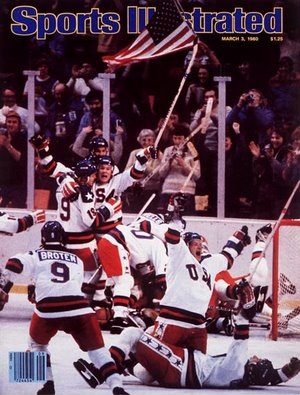 Mike from Minneapolis, Mark from Madison, Mike again from Wintrop, Mass., Neal from northern Minnesota. Guys. As in: Hey, why don't you guys get together and play some games?
Mike from Minneapolis, Mark from Madison, Mike again from Wintrop, Mass., Neal from northern Minnesota. Guys. As in: Hey, why don't you guys get together and play some games?
I'd followed their run through the Winter Games peripherally but was assuming the worst when, flipping channels one Friday night (literally: hand on the knob, kids), I came across a newsbrief informing us that the U.S. hockey team had beaten the Russians. Immediately I flipped back to the Olympics, to the tape-delayed game, just in time to see Mark Johnson (from Madison) slide between two defenders and flip it in the goal with one second left in the first period to tie it, 2-2. Holy crap! We win this? I watched the rest of the game on tenterhooks even though I knew its outcome, then went out into the night pumped beyond belief. It was an odd sensation. I'd grown up in unpatriotic times, when patriotism was the last refuge of squares rather than scoundrels. I'd watched the country fall apart militarily (Vietnam), politically (Watergate), economically (OPEC, stagflation). We had gas lines and hostages. Now we had this. What was this? It felt good. USA! USA!
Four years later the chant was already the province of louts. In the interim “USA Today” had been published, full of its dull news and patriotic charts, and capitalizing on the acronym “USA” as much as possible. Then we heard it all the time during the ‘84 Summer Games in Los Angeles, which the Soviet bloc, responding to our boycott of the 1980 Summer games in Moscow, boycotted. We weren’t going up against the eastern bloc's professional non-professionals; we were going up against ... Trinidad and Tobago. We weren't underdogs anymore but overdogs, beating our chests and reveling in our expected triumphs. Why chant for that? You'd hear it on the campaign trail, too. Ronald Reagan would reference the Olympics and get the chant going. Eventually the chant became his. And theirs. It turned my stomach.
I thought Homer Simpson killed it in 1993. I really did. There was an episode of “The Simpsons” in which Homer and Marge, driving to a parent-teacher conference, argue over who gets Lisa's teacher (an easy gig) and who gets Bart's (trouble). Homer whines and wheedles his way into getting Lisa's teacher again, and when Marge finally capitulates he does this:
Brilliant, I thought. That's that. They‘ll never be able to use it again.
Wrong. Too many scoundrels in this country. Too many louts. Now we use it to cheer on death rather than college kids.
I don’t know if there is a proper response to bin Laden's death. Mine, as I wrote yesterday, is muted. I'm glad he's gone, glad he was killed in the way he was killed, applaud the men who did it; but I assume someone somewhere will take his place.
I suppose the response closest to mine comes, ironically, from the website of David Frum, the right-wing originator of the phrase “Axis of Evil,” written by Rabbi Shmuel Herzfeld, a man of God 11 years my junior, in a piece entitled “Is it Wrong to Feel Joy at Bin Laden's Death?” Rabbi Herzfeld writes:
First there is recognition that even when our enemy falls, this does not signal an end to all our troubles. Just because one enemy or one army or one threat has been removed does not mean we are entirely safe.
Second, we must acknowledge that the destruction of the enemy did not necessarily arise from our own merits. We are perhaps not worthy of the good fortune that we have received and so we do not want to tempt God, as it were, or remind the Angel of Death of our own defects.
At the same time, I can't admonish those who have the impulse to chant “USA! USA!” for the death of the man who perpetrated this. Herzfeld again:
The Talmud tells us that “God does not rejoice with the fall of the wicked.” As the rabbinic teaching goes, as the Children of Israel were crossing the sea and the army of Pharaoh was drowning, God rebuked the angels for showing excessive joy.
The chanters are in good company. It's the impulse even of the angels.
Monday May 02, 2011
Osama's Death Certificate
In June 1989 I was 26 years old, recently returned from a year in Taiwan, and driving around at night with some friends in an unfamiliar warehouse district north of downtown Minneapolis when the news came on the radio: Ayatollah Ruhollah Khomeini, Supreme Leader of Iran, was dead at the age of 86. We were a fairly liberal group in a very liberal city but a spontaneous cheer went up in that car. Khomeini had been a thorn in our country's side for 10 years, we'd been hearing about him for 10 years, and it was nice to know we wouldn't be hearing about him much anymore. A minute later we sobered up. It felt classless, cheering for death.
Last night Patricia and I had some friends over for Sunday Movie Night. We used to do this fairly often but got off course this winter; but some of our members, who‘ve been through hellacious springs, needed it again, so we gathered in our living room for homemade pasta and wine and salad, to watch Martin Scorsese’s “Goodfellas.” Afterwards, before going to bed, I checked my email and received one from Ward, the man who made the homemade pasta:
FW: BREAKING NEWS: An AP source says Osama bin Laden is dead
See what we miss watching movies?
I immediately went to the New York Times site for confirmation, then Andrew Sullivan to read his thoughts, then Salon to read their headlines (which were already aftermath headlines; “And now what?” headlines). I looked up Abbottabad on Google maps. Finally I went to Facebook. “Oh right, Facebook,” I thought. I scrolled backwards to see who posted the news first. It was a friend from Delaware who referenced, obliquely, how happy Wolfie B. had made her with “those five words.” Two people had already posted this photo, which made me smile, since it encapsulated the seriousness of one side of our political debate versus the decided lack of seriousness on the other:

Someone wrote “The world feels better tonight.” Another: “I wish I had some fireworks to set off,” to which her friend, our mutual friend, replied, “I just heard one go off in my neighborhood.” People were gathering at the White House, and in Times Square, to cheer. A local journalist admonished his readers: “I hope people (esp. liberals) don't overthink this. Bin Laden dead is a good thing.” A movie critic wrote, “If you‘re in Times Square in a Navy uniform tonight and don’t kiss a nurse, you have no sense of history. And no game.”
There were also the usual status updates about weekend trips, Sunday concerts, and funny things the child said.
Despite the wine, I stayed sober. I didn't disagree with the local journalist—“Bin Laden dead is a good thing”—I just knew the world wasn't much of a changed thing. Bin Laden has been a thorn in our country's side for 10 years, and it was nice to know he was gone, but there will be others, because there are always others. I simply hope he was the worst of it. In this way, and perhaps only this way, Osama bin Laden and I were in accord. He wished to be the western world's greatest enemy for the 21st century, and I sincerely hope, when the century's history is written, he's gotten that wish.
Links:
- Today's front pages via Newseum
- David Remnick on Obama vs. Osama
- Also from the New Yorker: What did Pakistan know and when did they know it?
- Via NPR: The Pakistani who tweeted the news without realizing it
- David Weigel on the gathering outside the White House
- ABC News footage of the bin Laden compound
- One more time: Andrew Sullivan liveblogs the news of the death of Osama bin Laden
Sunday May 01, 2011
Hollywood B.O.: “Fast Five” Zooms Out of the Gate; Will It Fade?
This weekend “Fast Five” had the 27th best opening in movie history, unadjusted, grossing $83 million, and has already surpassed the total domestic gross of the third film in the franchise, “Tokyo Drift.”
It's actually worthwhile comparing these “Fast and Furious” movies, which began, in its current Vin Diesel-fueled incarnation, in the summer of 2001. First, let's remove “Tokyo Drift,” the red-headed stepchild of the franchise, from the equation, since it didn't include any of the original stars. Without it, a clear pattern emerges that is at one with the industry: bigger and bigger opening weekends, shorter and shorter legs:
- “The Fast and the Furious” (2001) grossed $40 million during its opening but $144 million overall. Opening as percentage of total? 28%
- “2 Fast 2 Furious” (2003), the Diesel-less sequel, grossed $50 million opening and $127 overall: 40%.
- “Fast and Furious” (2009)? $70 million opening, $155 overall: 46%
Each movie makes a bigger splash but with smaller ripples. And if you adjust for inflation, well, nothing's surpassed the original in popularity and dough.
It'll be interesting to see if “Fast Five” is running on sprinter's legs, like the others, or if it has a bit of the long-distance runner in it. Because for the first time since the first movie, a “Fast and Furious” did well with critics:
- “The Fast and the Furious”: 64%
- “2 Fast 2 Furious”: 39%
- “Tokyo Drift”:43%
- “Fast and Furious”: 21%
- “Fast Five”: 81%
Will these higher numbers translate into a wider audience, and longer legs, or is the audience for these kinds of movies irrevocably narrow, the film's legs inevitably short and stubby?
Elsewhere, both “Prom” and “Hoodwinked Too!” bombed, grossing $5m and $4.1m in 2,700 and 2,500 theaters, respectively. “Dylan Dog,” with former (and underrated) Superman Brandon Routh in the lead, did even worse. It opened in 875 theaters and grossed less than $1 million, which is only a triumph on Bizarro world.
The quick totals.
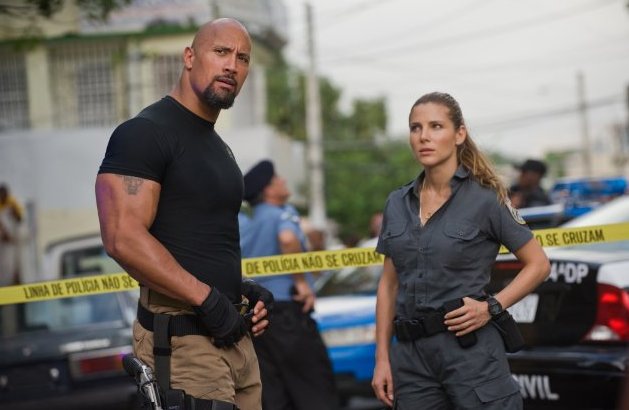
Sure, “Fast Five” has arms; but does it have legs? (The above photo could also make a good caption contest, if anyone's willing.)
Sunday May 01, 2011
Gosh, Sweetie, That's a Big New York Times Summer Movie Section
I used to look forward to The New York Times' summer movie section to see, you know, what movies would be playing during the upcoming summer. But that was B.I. (Before Internet). Or maybe BIMDb.com. Either way, I rarely look at the list anymore. I know what's coming. In a way, we all do.
But I still look forward to the section for, as they used to say about Playboy, the articles. This year's includes rising stars (Dominic Cooper? Still?), summer movie faves (I like Maya Rudolph's choice: “Purple Rain”), plus profiles of Mario Bello, Michael Fassbender and Thor.
Then there's Terrence Rafferty on summer beach movies, which I was slightly disappointed in only because it's Terrence Rafferty. Isn't the point that beach movies began as fictional farce (Gidget, Frankie and Annette) and ended as non-fictional art (“The Endless Summer,” “Step into Liquid,” “Riding Giants”)? Or that the pop cultural moment may go (Beach Boys, etc.) but the waves keep coming? At the same time, I like the background Rafferty give us on American International Pictures and the Frankie/Annette flicks, and the observation that parents were around for Gidget's film but were essentially banished for Frankie and Annette. Plus these lines:
[“Beach Party”] was awful, and its sequels — “Muscle Beach Party” (1964), “Bikini Beach” (1964), “Beach Blanket Bingo” (1965) and “How to Stuff a Wild Bikini” (1965), all directed by Mr. Asher — were, if anything, worse. In the last two, the comic relief is provided by the great Buster Keaton, whose characteristically melancholy expression seems, in this context, fully justified.“
But the big article, and the headline of the week, is ”Gosh, Sweetie, That's a Big Gun,“ a back-and-forth between Manohla Dargis and A.O. Scott on the rash of young, violent heroines in movies.
In the intro they lump them all together “Hanna,” “Sucker Punch,” “Super,” “Let Me In,” “Kick-Ass” and ”The Girl with the Dragon Tattoo“ trilogy, so initially I was worried. Aren't these movies, and these characters, vastly different? You can begin with the notion that ”Sucker Punch“ is for boys and ”Dragon Tattoo“ is for girls; that the characters of ”Sucker Punch“ never escape the fetishistic fantasy role assigned to them by boys, while Lisbeth Salander is a kind of role model for girls. She is, as I wrote in my review of ”The Girl with the Dragon Tattoo,“ a heroine unprecedented in film: the rescuer rather than the rescued; the pursuer rather than the pursued. Scott points out that most of these girls rely on men for their training (”Hanna,“ ”Sucker Punch,“ ”Kick-Ass“) but fails to mention that Lisbeth relies on the men in her movies for nurturing. She's tough on her own. That's a massive-enough difference to turn the world on its head.
But to the main question: What or who is driving all this?
- Scott: ”It seems to me that what fuels these fantasies is also a deep anxiety ... about female sexuality“
- Dargis: ”Male anxiety about female sexual power [can always be depended on to make trouble, but] one difference is the tender age of these recent combatants.“
Dargis gives us a pretty good recent timeline: from Luc Besson's ”The Professional“ to Quentin Tarantino's killer ladies, but even this timeline is misleading: Portman in ”The Professional“ is precocious, not supertough. She's a real young girl. You can't say that about Baby Doll in ”Sucker Punch.“
The two critics, particularly Scott, keep going off target. His ”Social Network“ interlude is particularly unncessary, as his need to assure us, as the father of a 12-year-old, that he likes tough women. He writes that Michelle Williams' character writes ”a new chapter“ in westerns. To which Dargis responds dryly: ”Maybe a paragraph.“
Then Scott does what Scott does. He spends an article dithering, or going off target, or stating the obvious or soothing, and then all of a sudden he lays out the point perfectly:
I think the first Salander movie ran into a serious problem when it tried to translate Larsson’s anger about pervasive sexual violence into cinematic terms. It is in the nature of the moving image to give pleasure, and in the nature of film audiences — consciously or not, admittedly or not — to find pleasure in what they see. So in depicting Salander’s rape by her guardian in the graphic way he did, the director, Niels Arden Oplev, ran the risk of aestheticizing, glamorizing and eroticizing it, just as Gaspar Noé did with Monica Bellucci’s assault in “Irreversible.”
Exactly. I just saw the Japanese film ”13 Assassins," in which there's rape and cruelty. We don't see the rape; we see its aftermath. We see the aftermath, the result, of even greater cruelty. Those scenes are always sobering and horrifying, never titilating or exploitative.
But, now that I think about it, that's a different subject, violence against women, rather than the subject at hand, girls with big guns. Why these girls and why now? Dargis and Scott don't come close to an answer. Maybe because they never bring up comic books, the driving force of the entire industry now, and the source of half the heroines they're writing about.

Dargis and Scott don't see much difference between Lisbeth and Baby Doll.
Baseball's Active Leaders, 2023
What Trump Said When About COVID
Recent Reviews
Everything Everywhere All at Once (2022)
Black Panther: Wakanda Forever (2022)
Doctor Strange in the Multiverse of Madness (2022)
Spider-Man: No Way Home (2021)
The Cagneys
A Midsummer Night's Dream (1935)
Something to Sing About (1937)
Angels with Dirty Faces (1938)
A Lion Is In the Streets (1953)
Man of a Thousand Faces (1957)
Never Steal Anything Small (1959)
Shake Hands With the Devil (1959)








